Conversations With The Hearing (1994/2020) by Joseph Grigely comes fromGrigely’s extensive archive of conversations through notes and drawing that he has gathered over the years. For Shimmer, he has made a selection which he and designer Christophe Clarijs have made into 5 postcard-sized works. These works will be dispersed through the postal system. Fragments of past conversations will move through hands, mail slots, in pockets and across borders. Available as a free pack of 5 postcards (edition of 250).
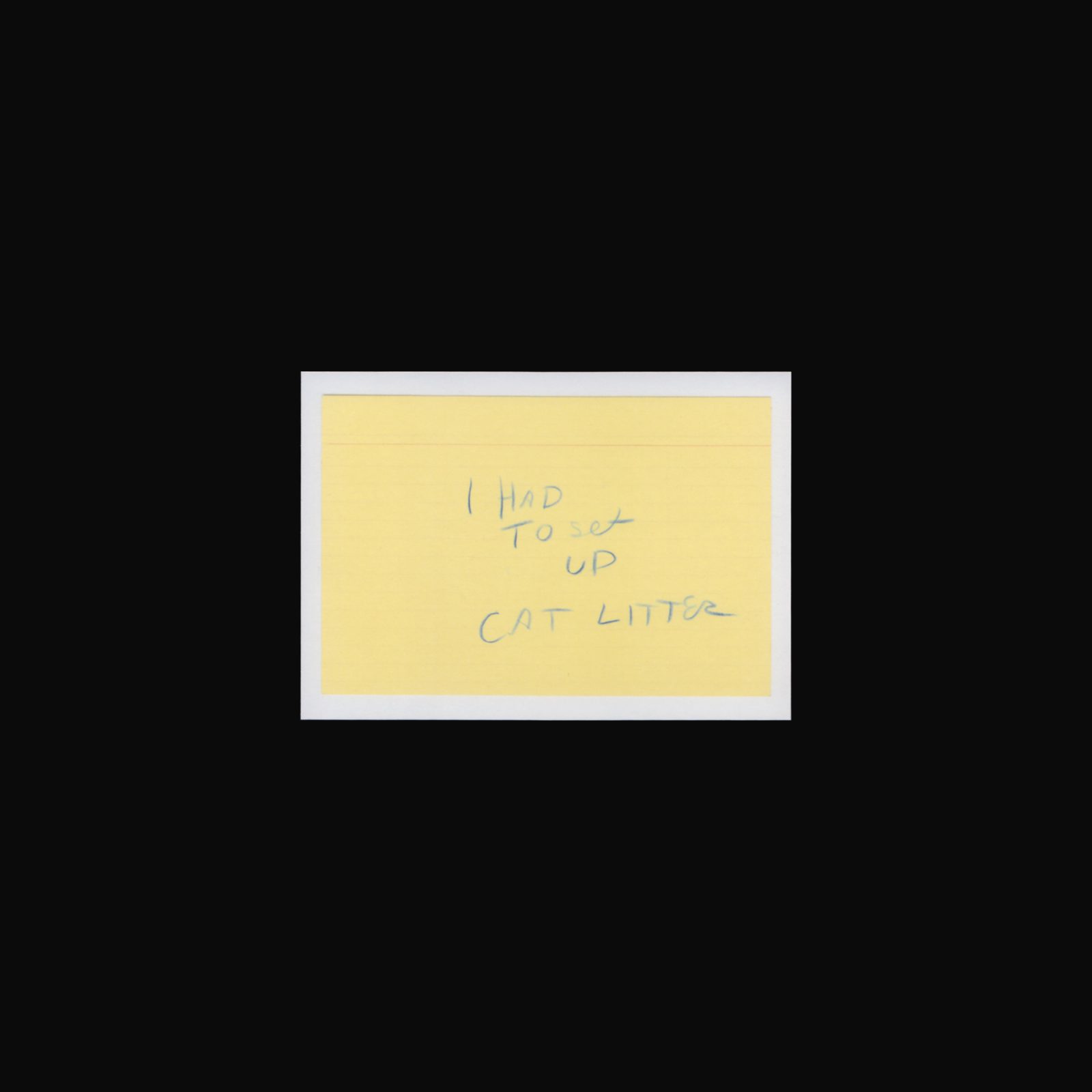
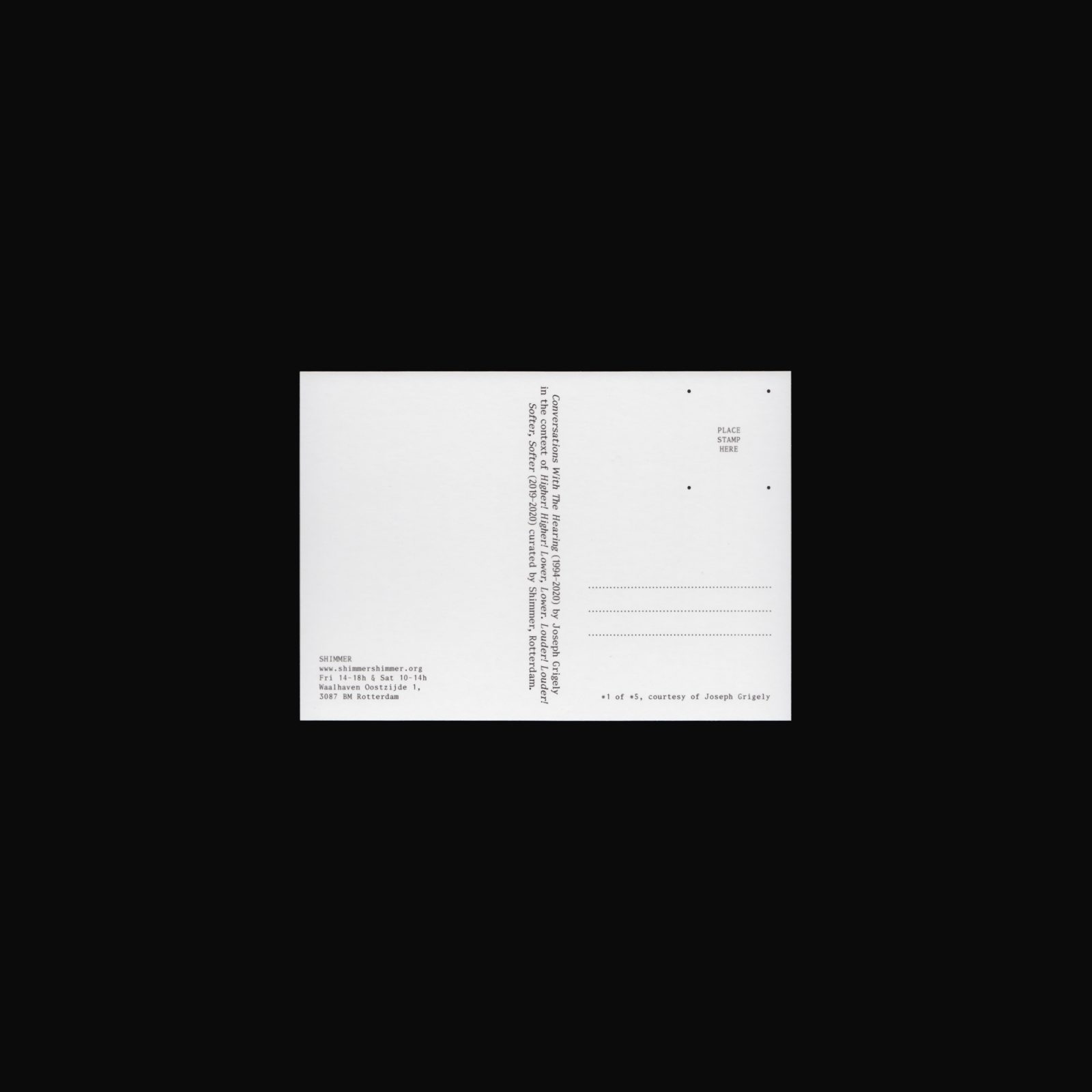
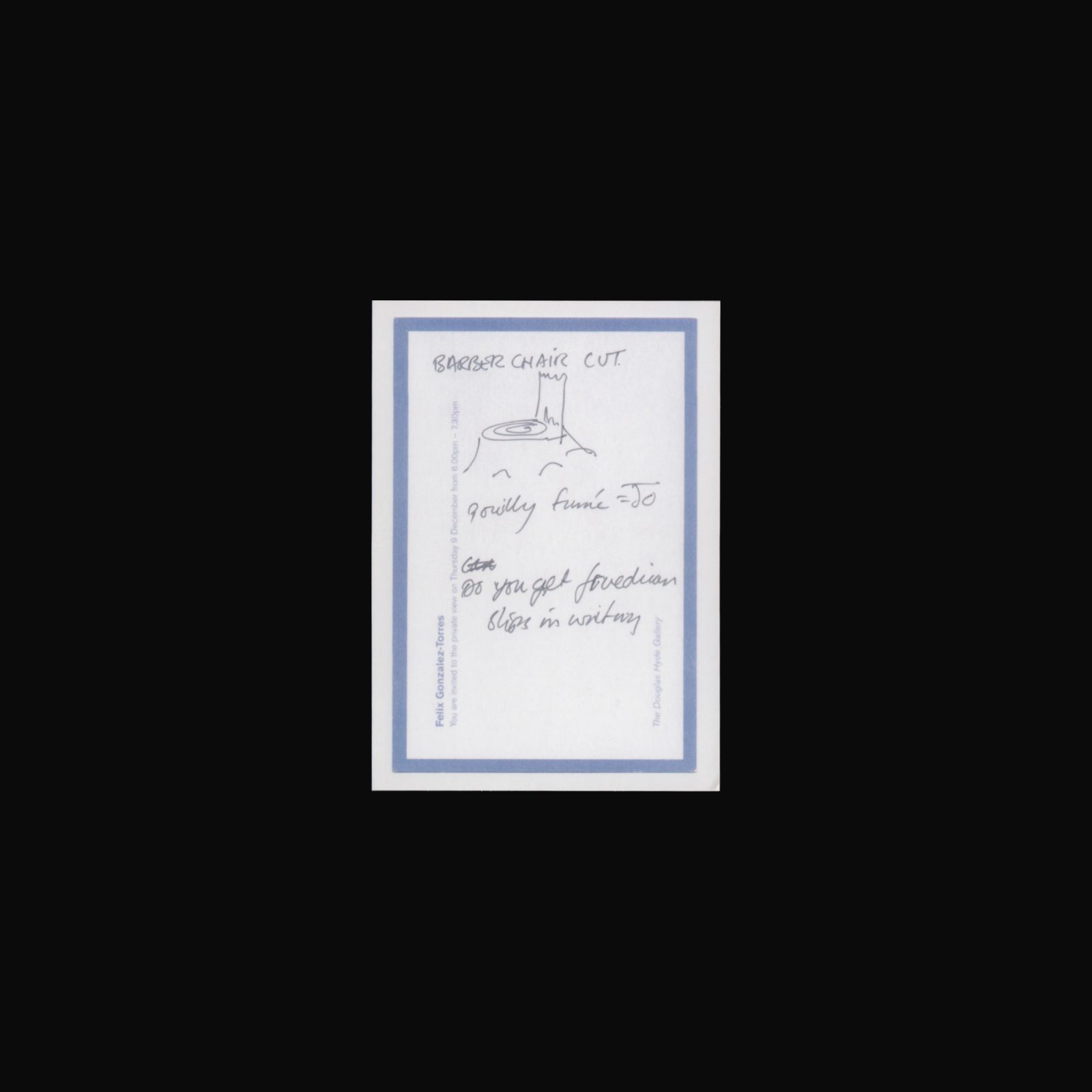
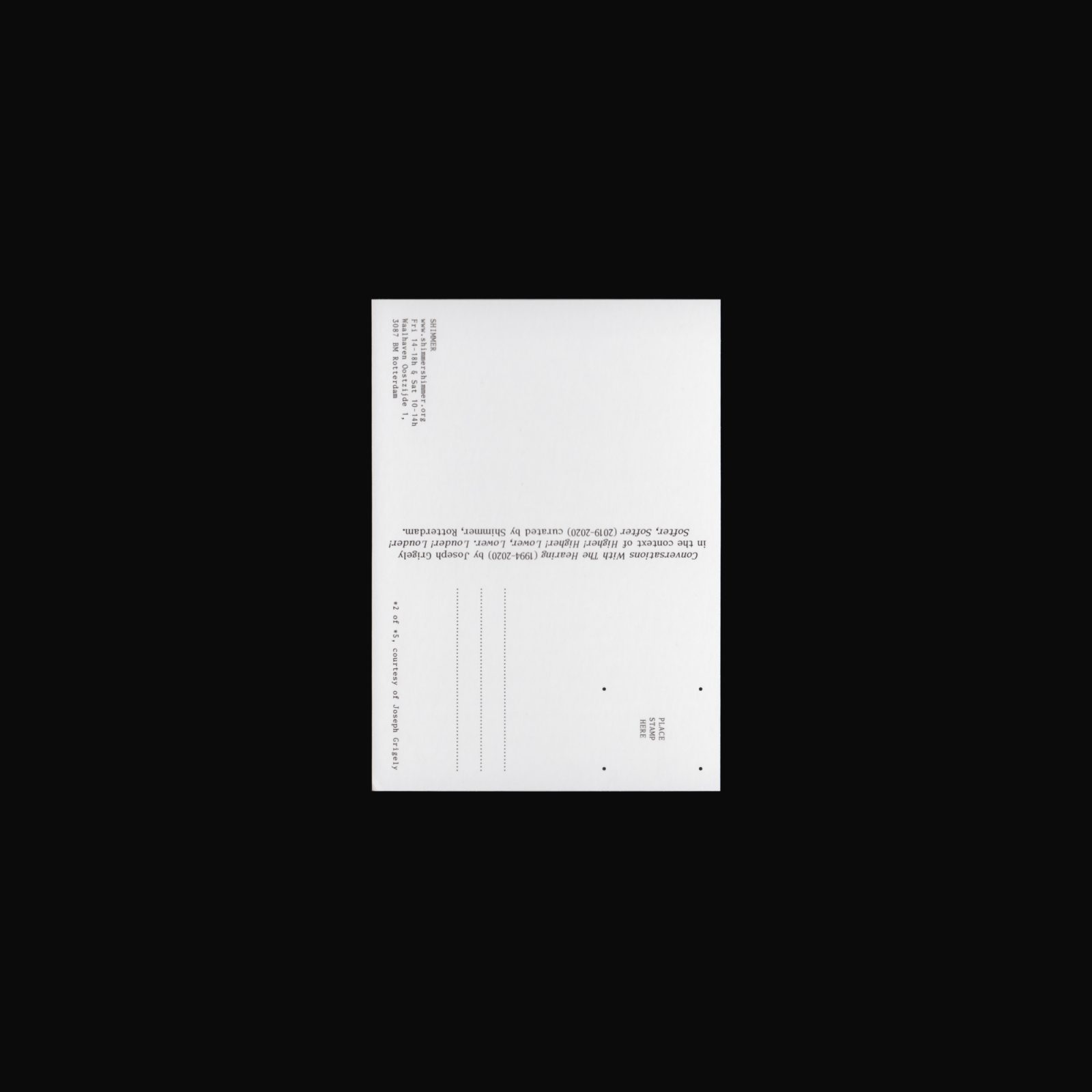
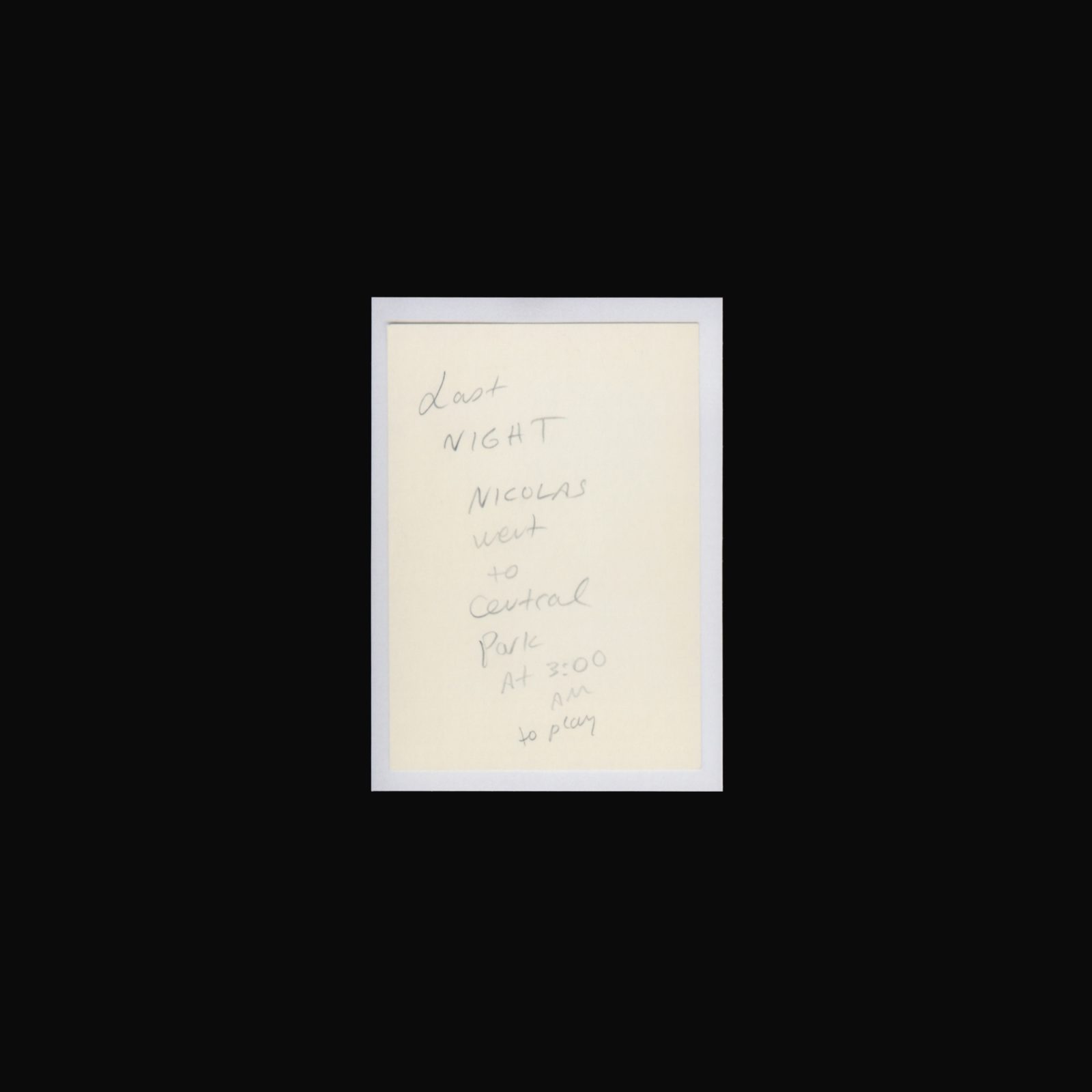
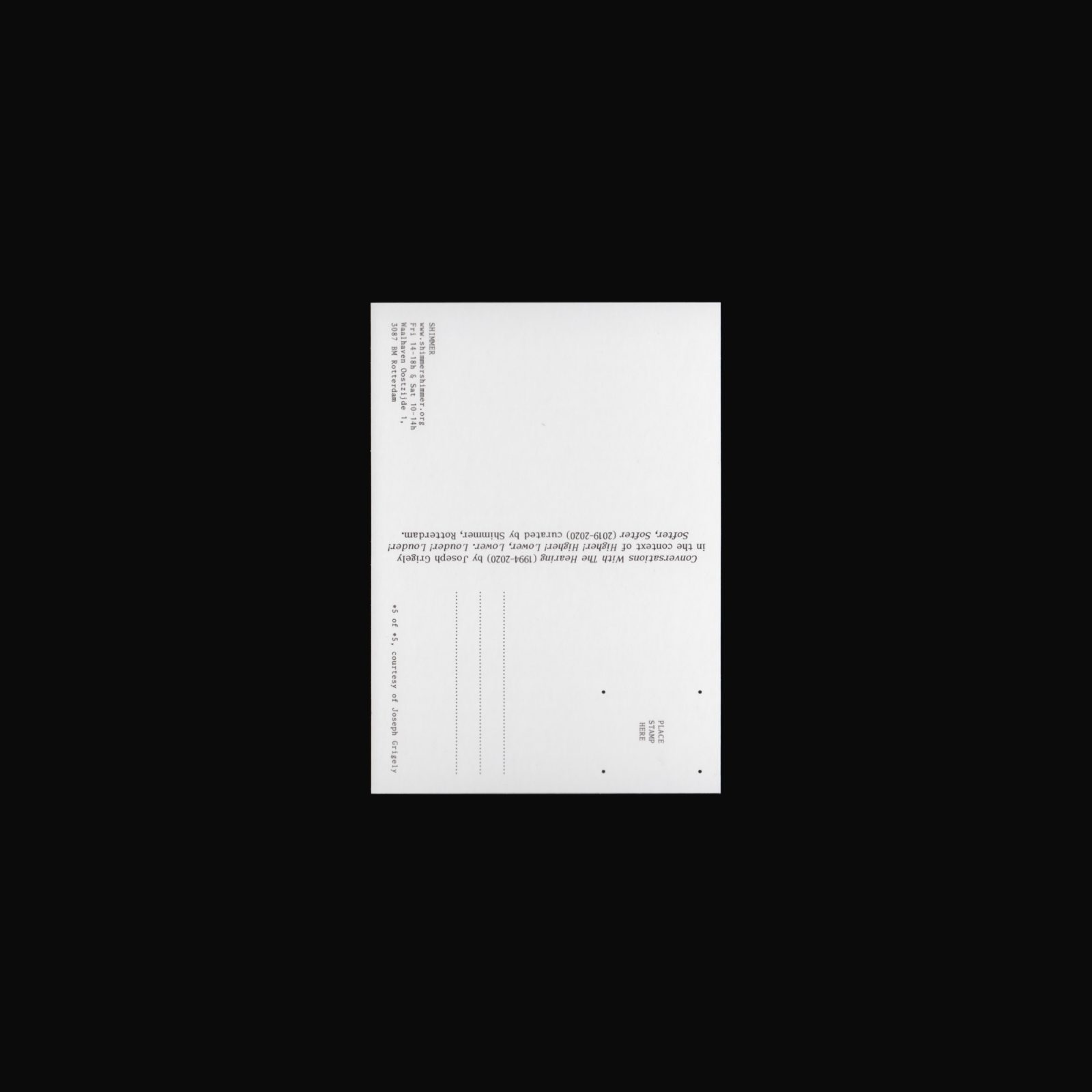

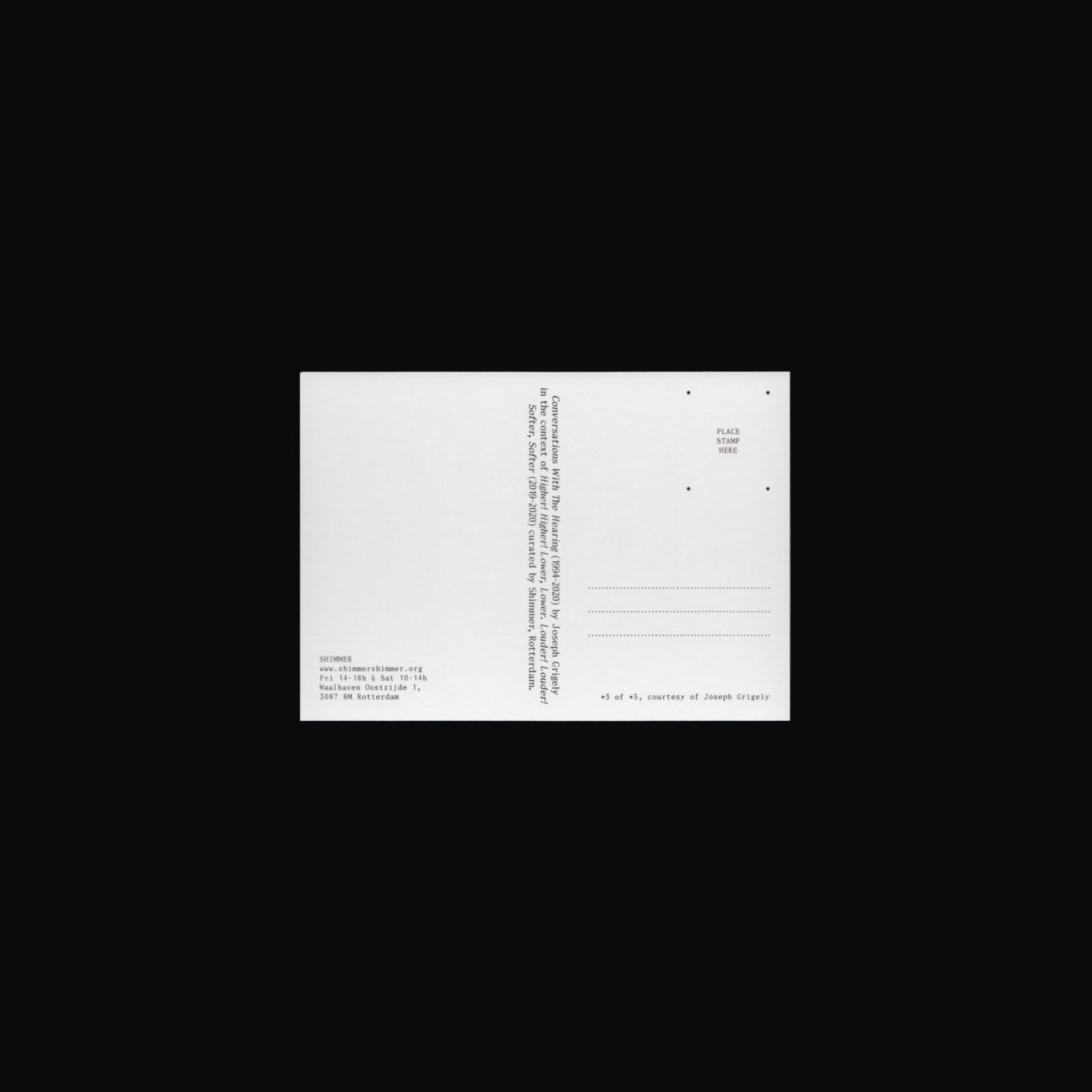
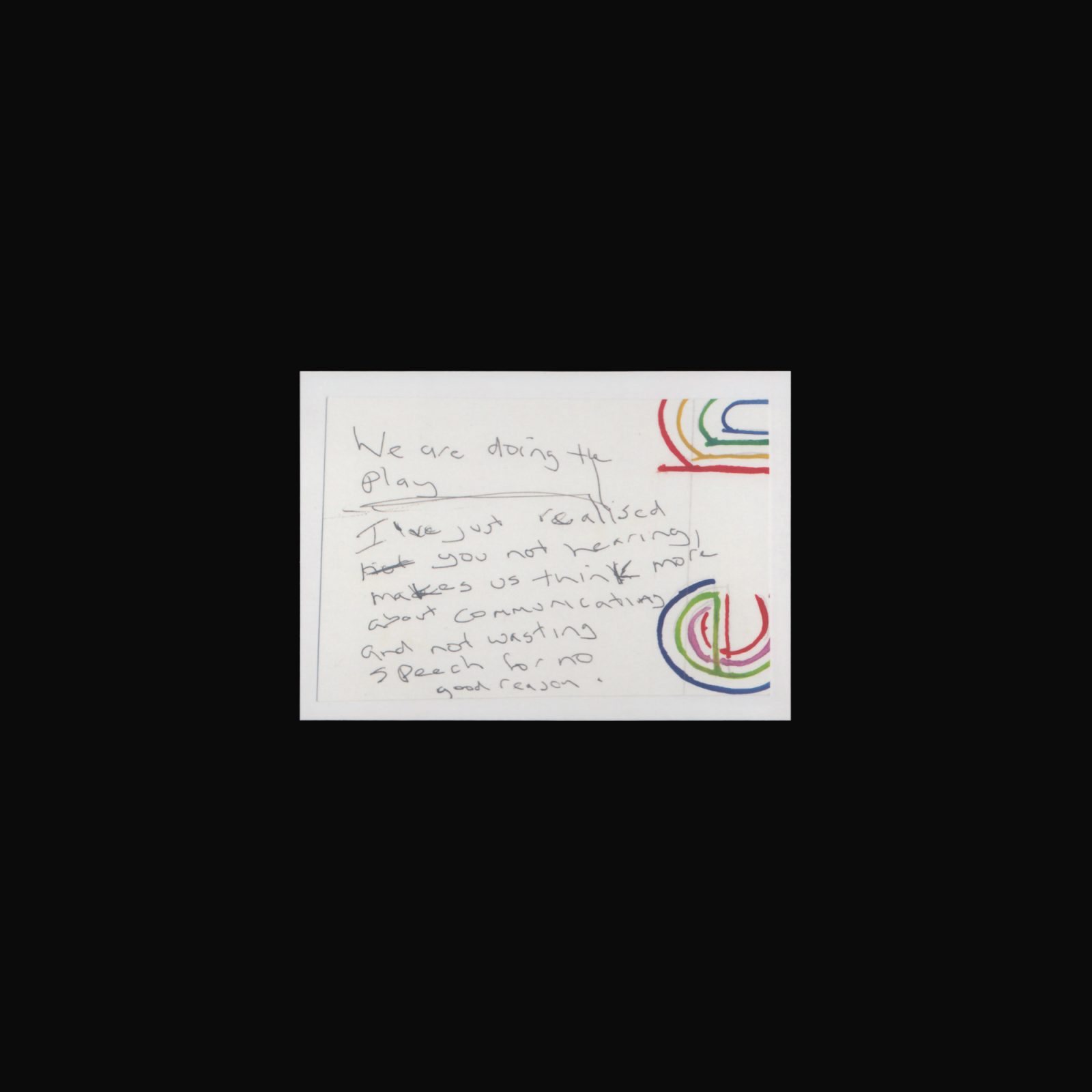
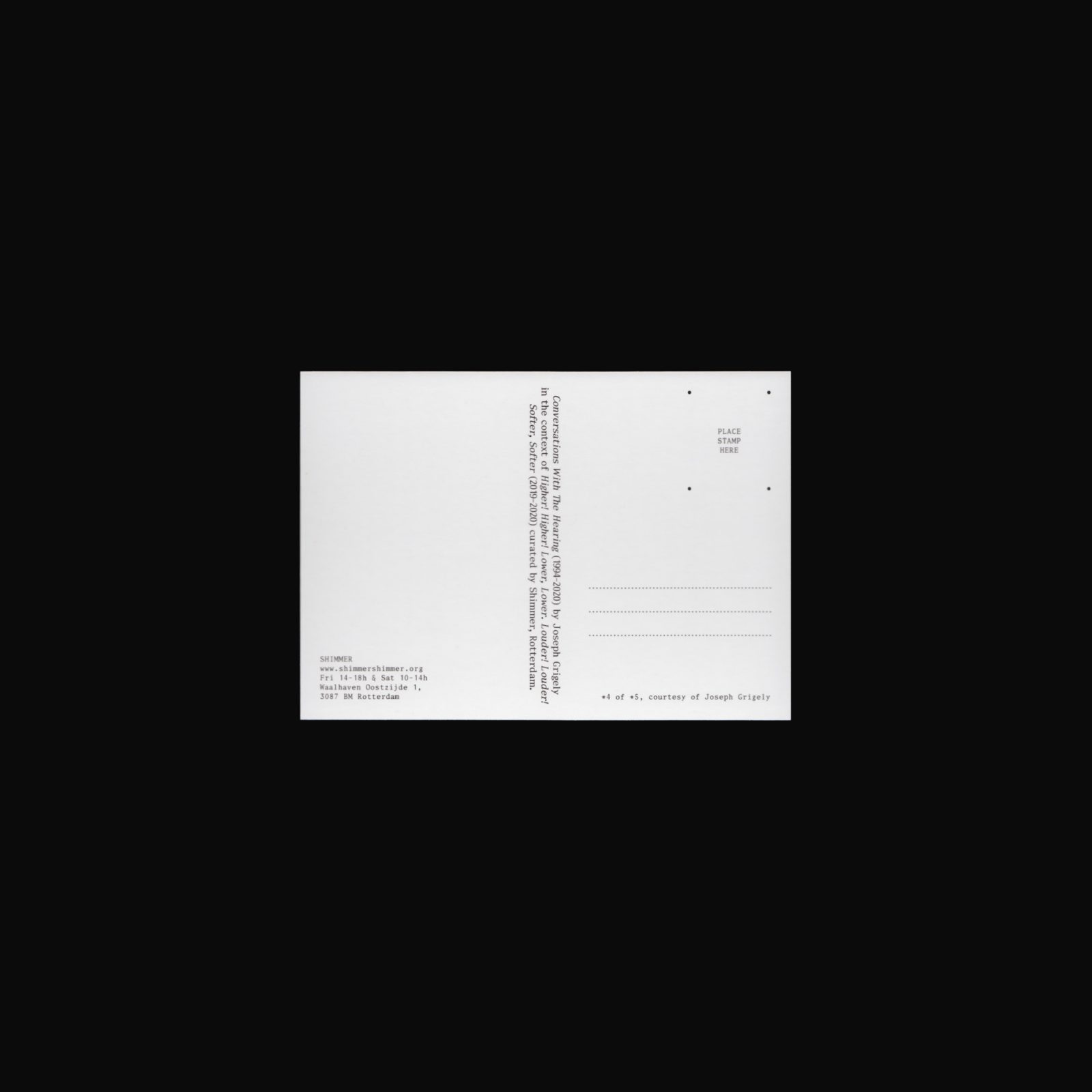
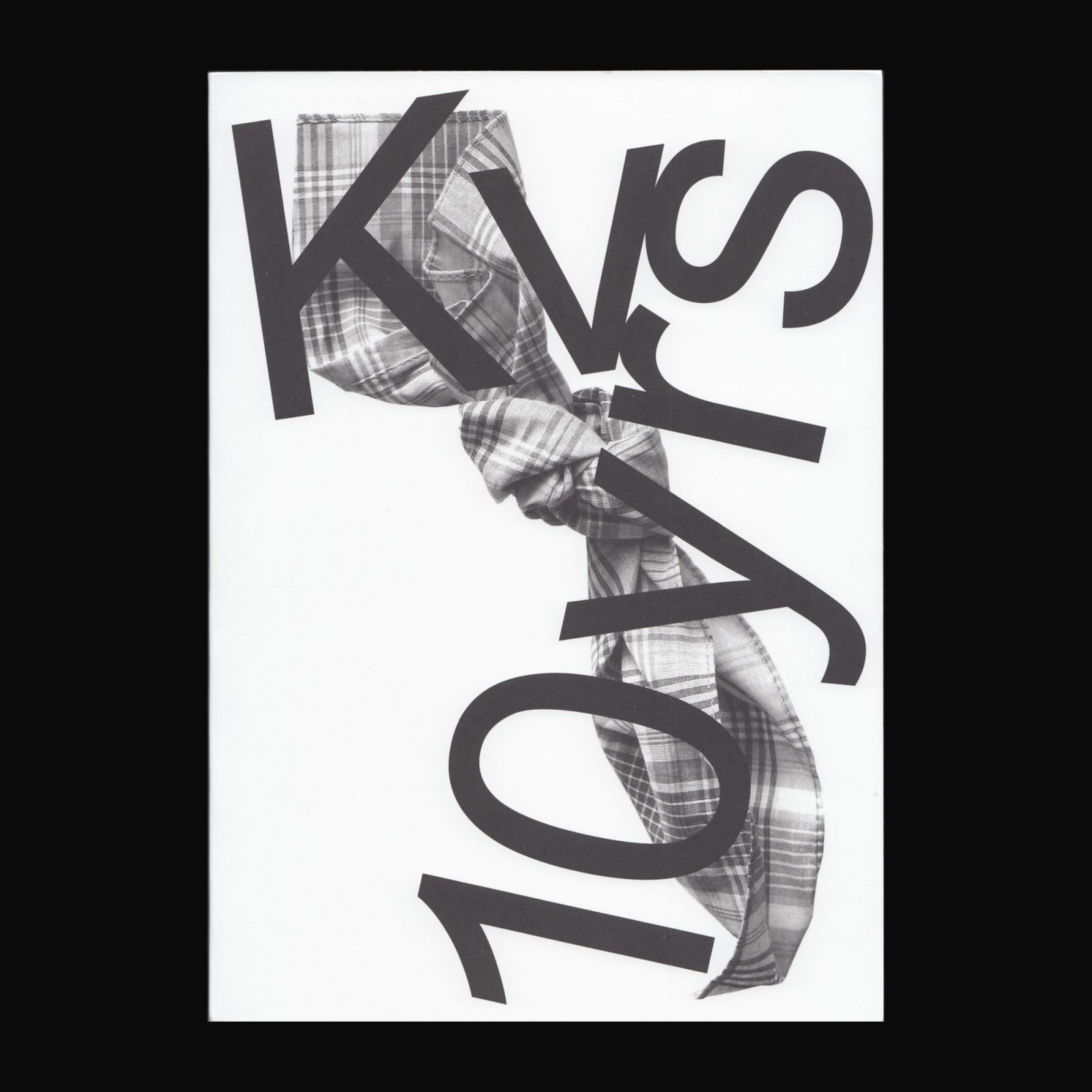

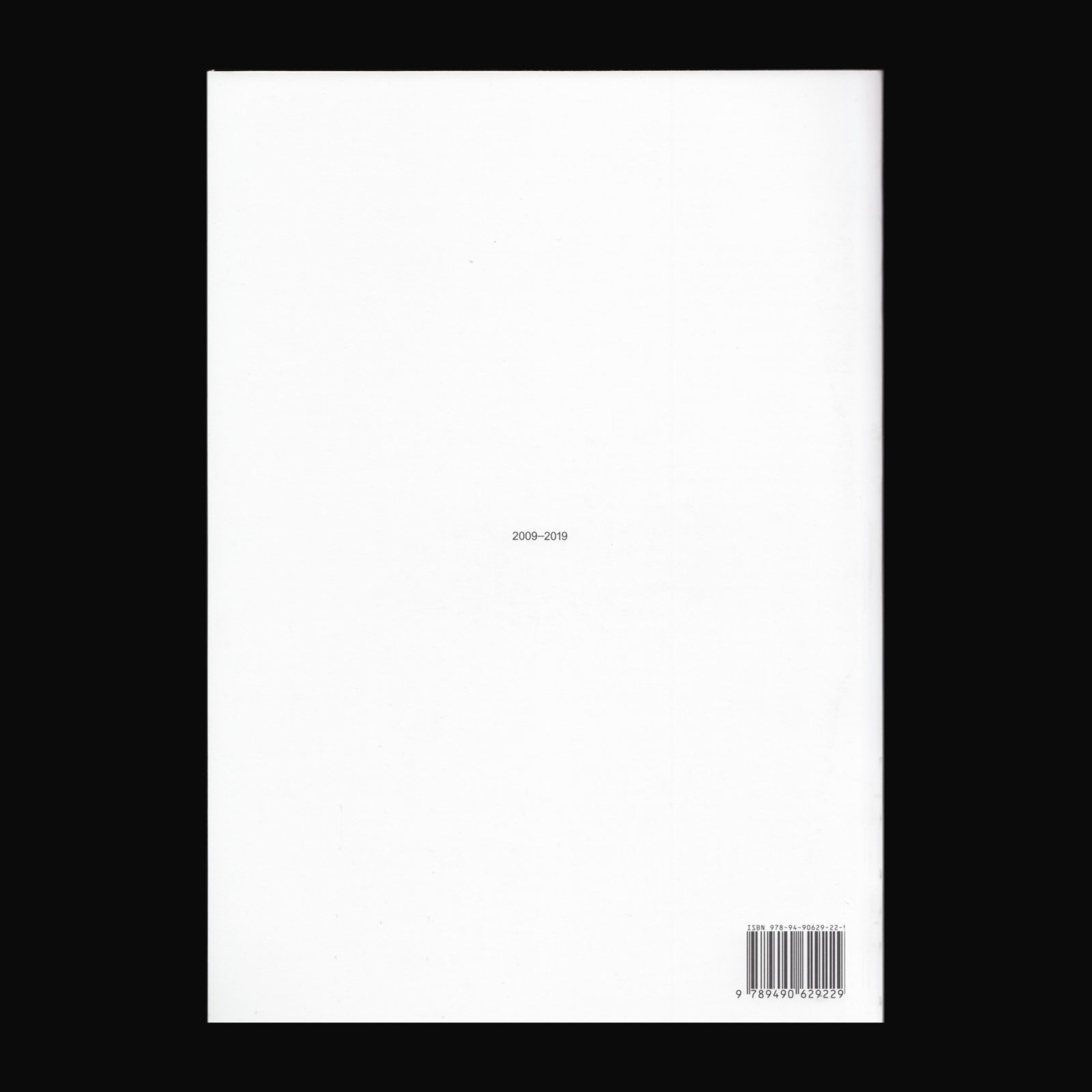
Kunstverein is essentially a curatorial office that offers lectures, presentations, screenings, and independent publishing. Because of its unconventional structure, it allows alternative methods to be considered in terms of presentation, hosting, and exhibition-making. This extensive anthology looks back at the past decade of their activity, from 2009 to 2019, and is filled with ephemera, images of performances and shows, bulletins, and much more. With contributions by Yana Foqué, Krist Gruijthuijsen, Anthony Huberman, and Maxine Kopsa.
Designed by Marc Hollenstein.
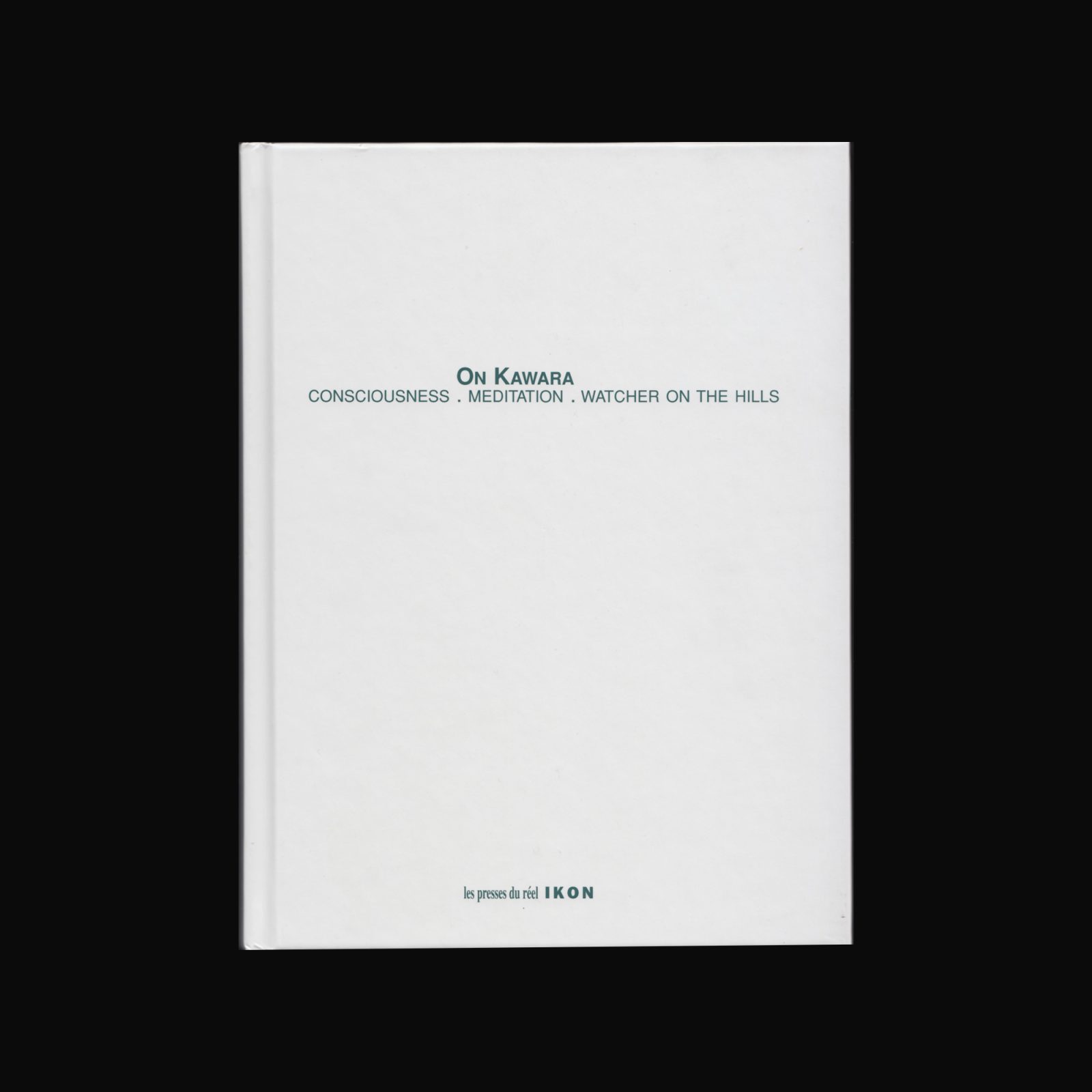
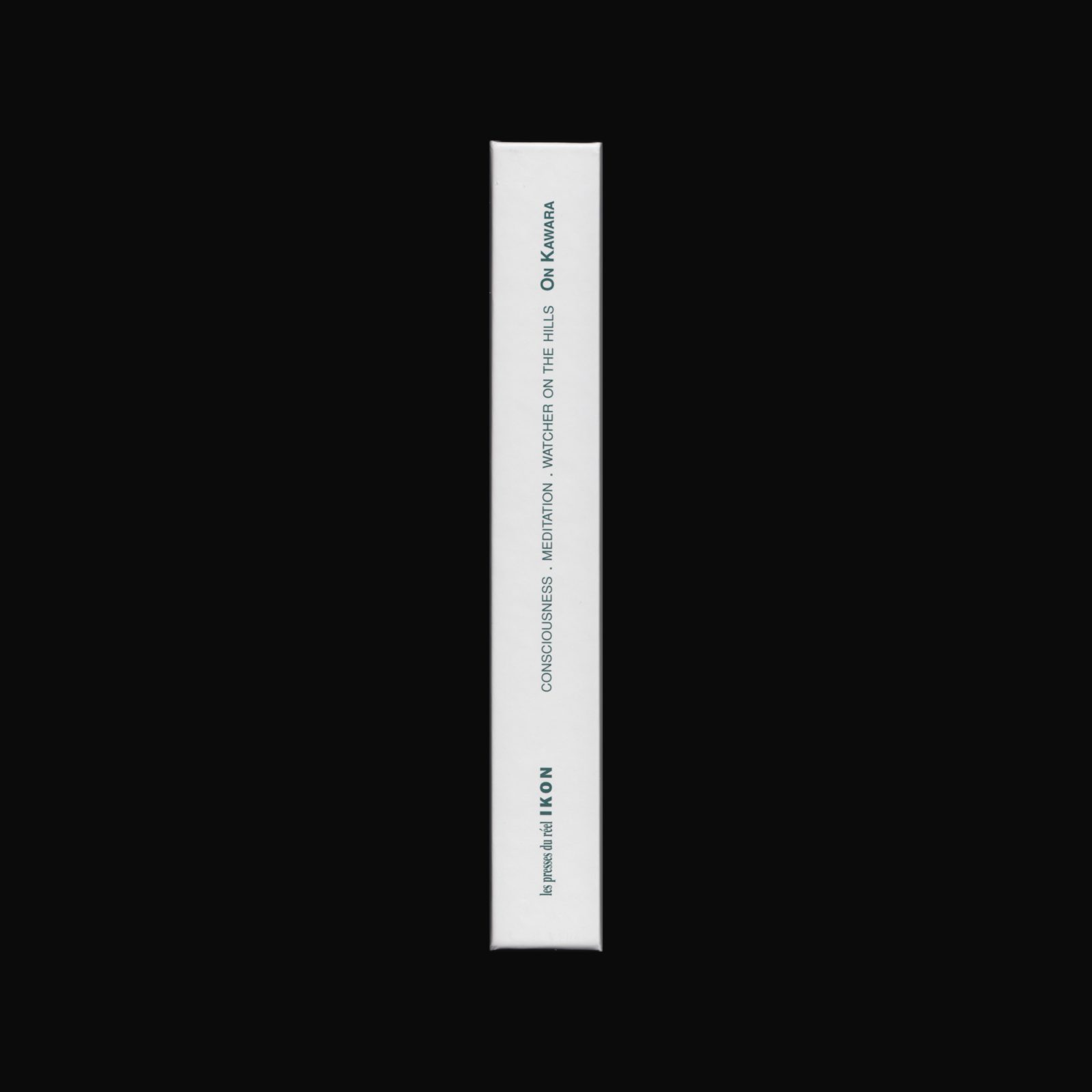
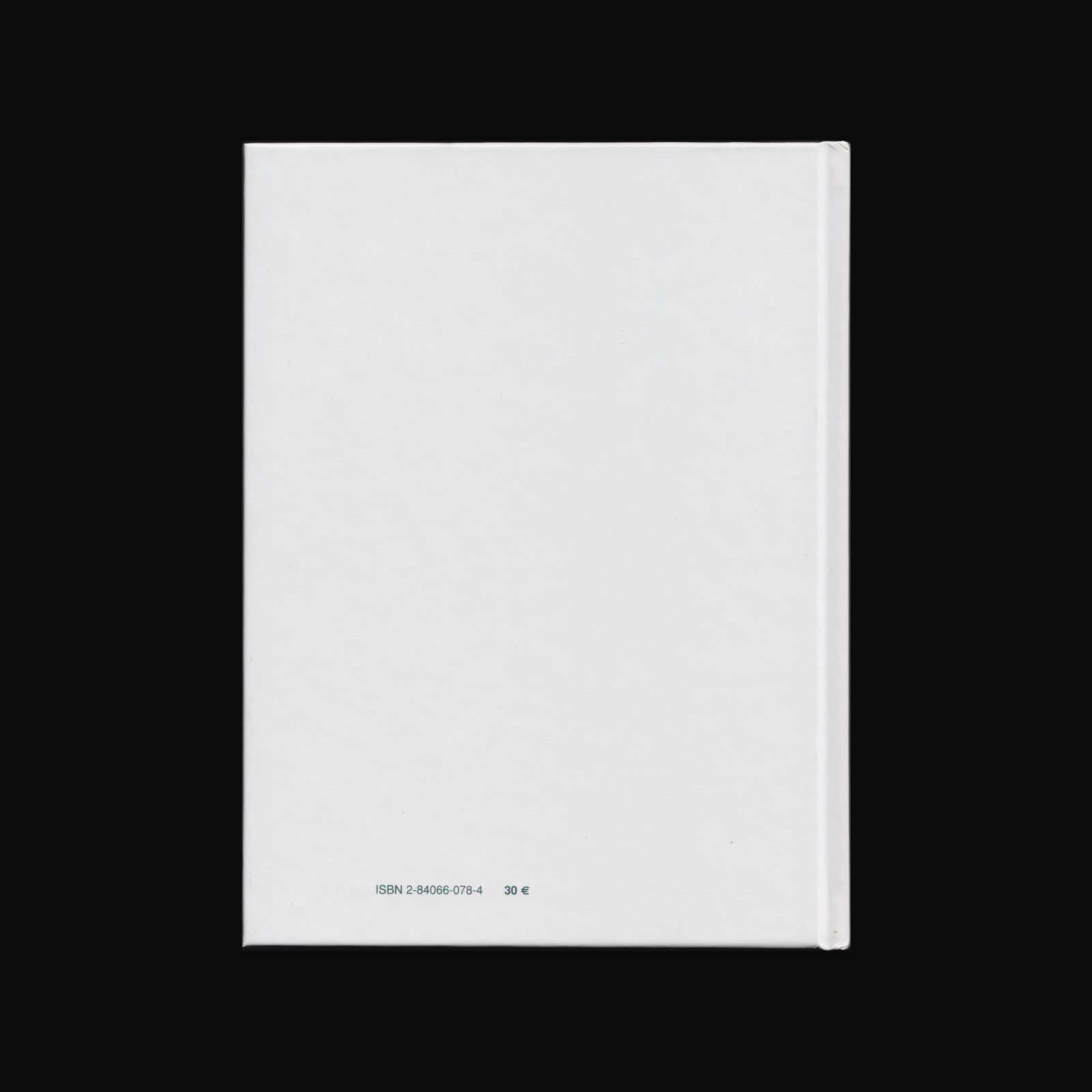
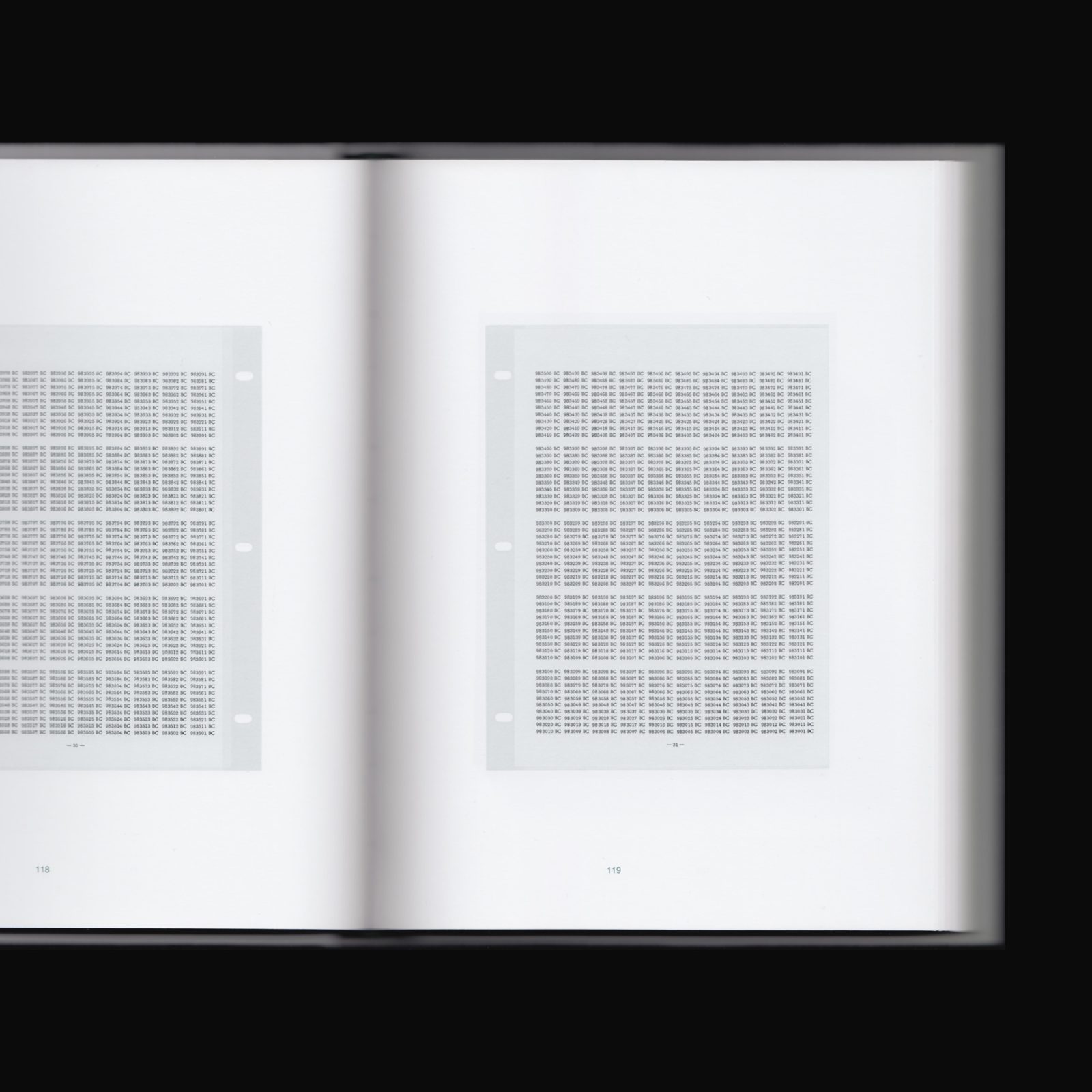
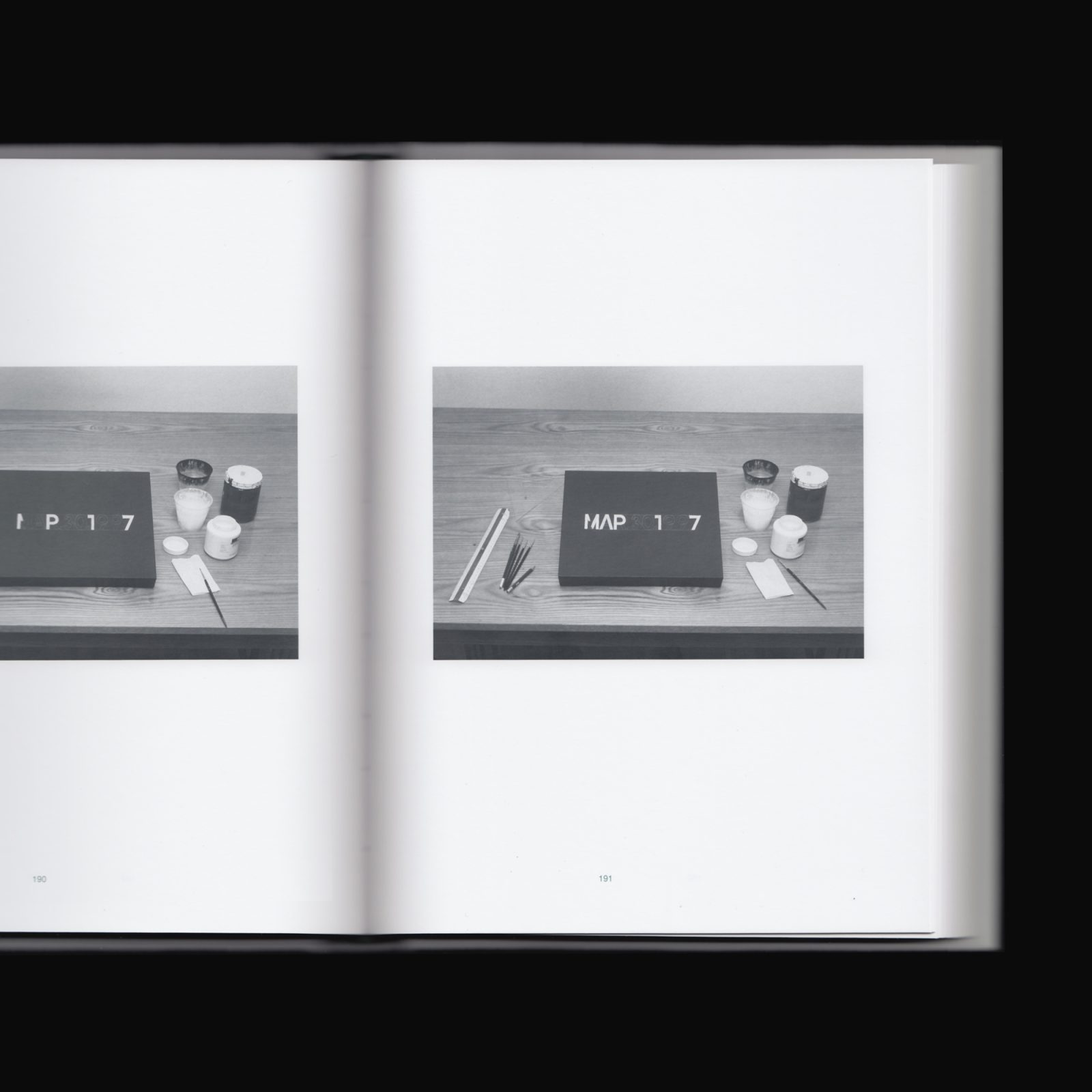
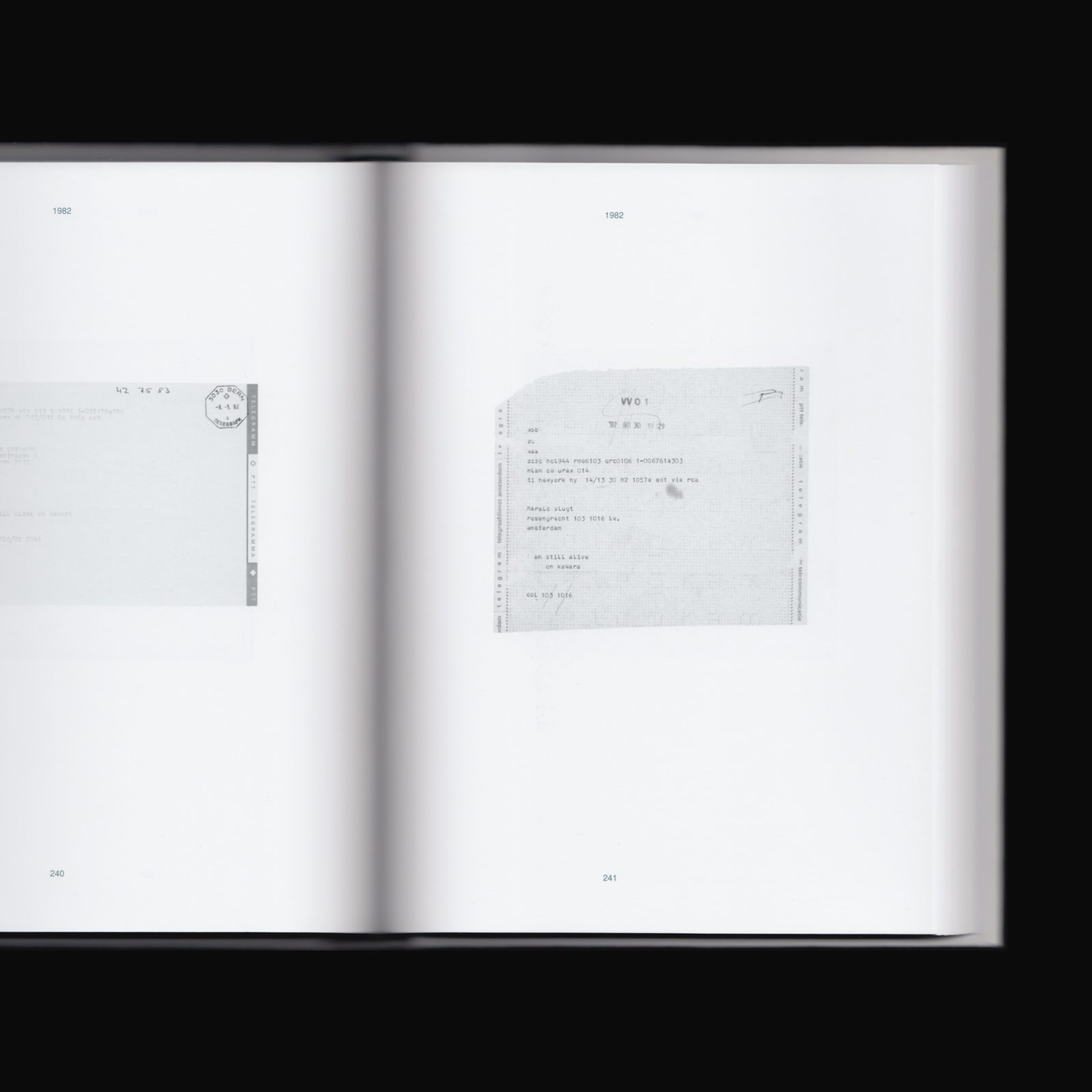
Produced on the occasion of the tour of the exhibition Consciousness. Meditation. Watcher on the Hills, this publication gathers and documents Kawara’s Date paintings (revealing for the first time their method of production), telegrams and books from the One Million Years series. Texts by Yamamoto, Khalil Gibran, Osho, René Denizot, Michel Gauthier, Franck Gautherot, Jonathan Watkins, Adachi, Penrose, Hamerro, Bohm.
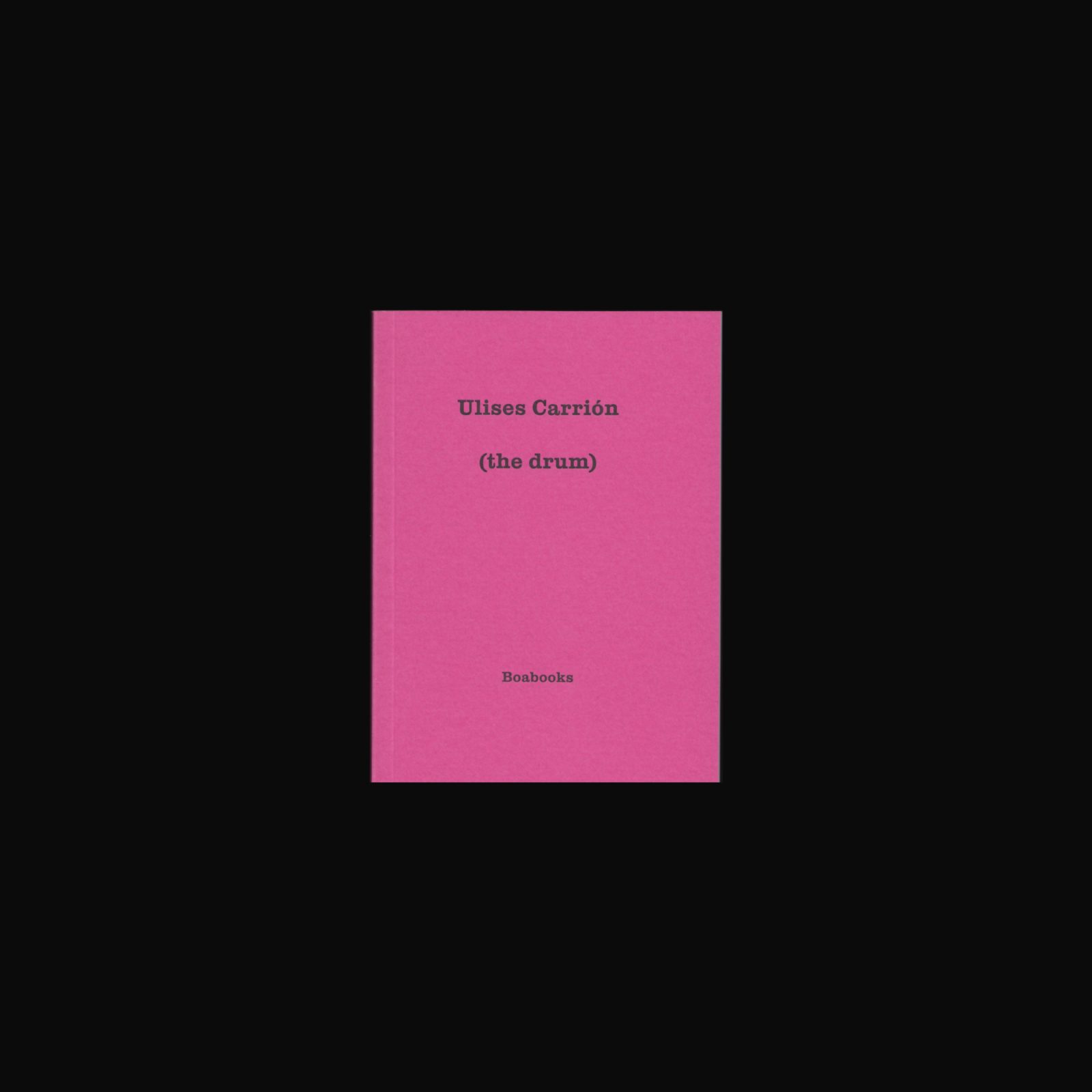

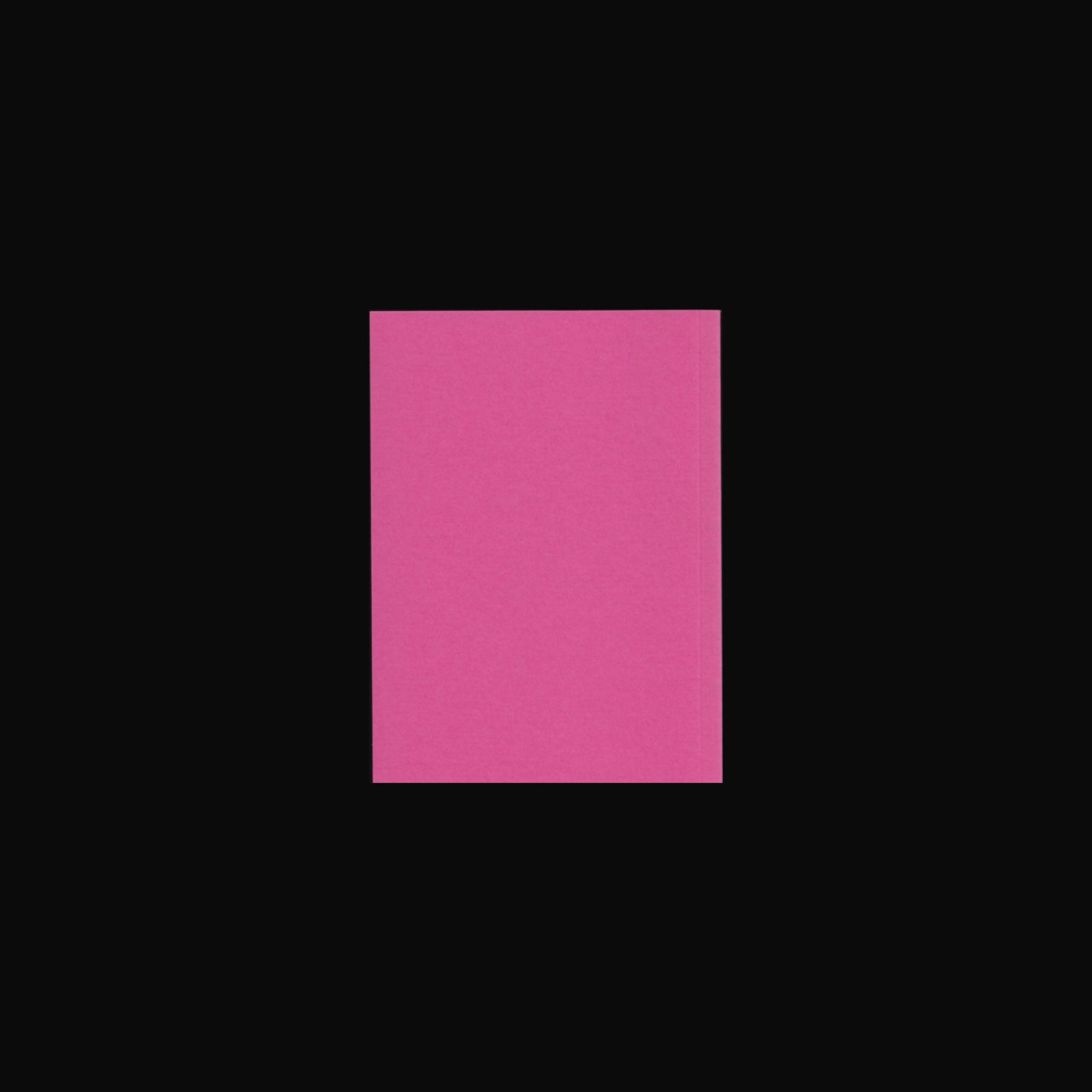
(the drum) is one of Ulises Carrión’s early linguistic exercises in English, originally handwritten in black ink in 1972. The artist fragments the names of musical instruments to express a sound. His attitude to poetry precluded, to a certain extent, his book The New Art of Making Books: “The text of a book in the new art can be a novel as well as a single word, sonnets as well as jokes, love letters as well as weather reports.”
Ulises Carrión (1941–1989) is one of the most important figures of Mexican conceptual art. His 1975 manifesto The New Art of Making Books helped defined artist’s books as an autonomous artistic genre. His work includes numerous artist’s books—which was then designated as bookworks—but also video art, sound arts, performance and mail art.
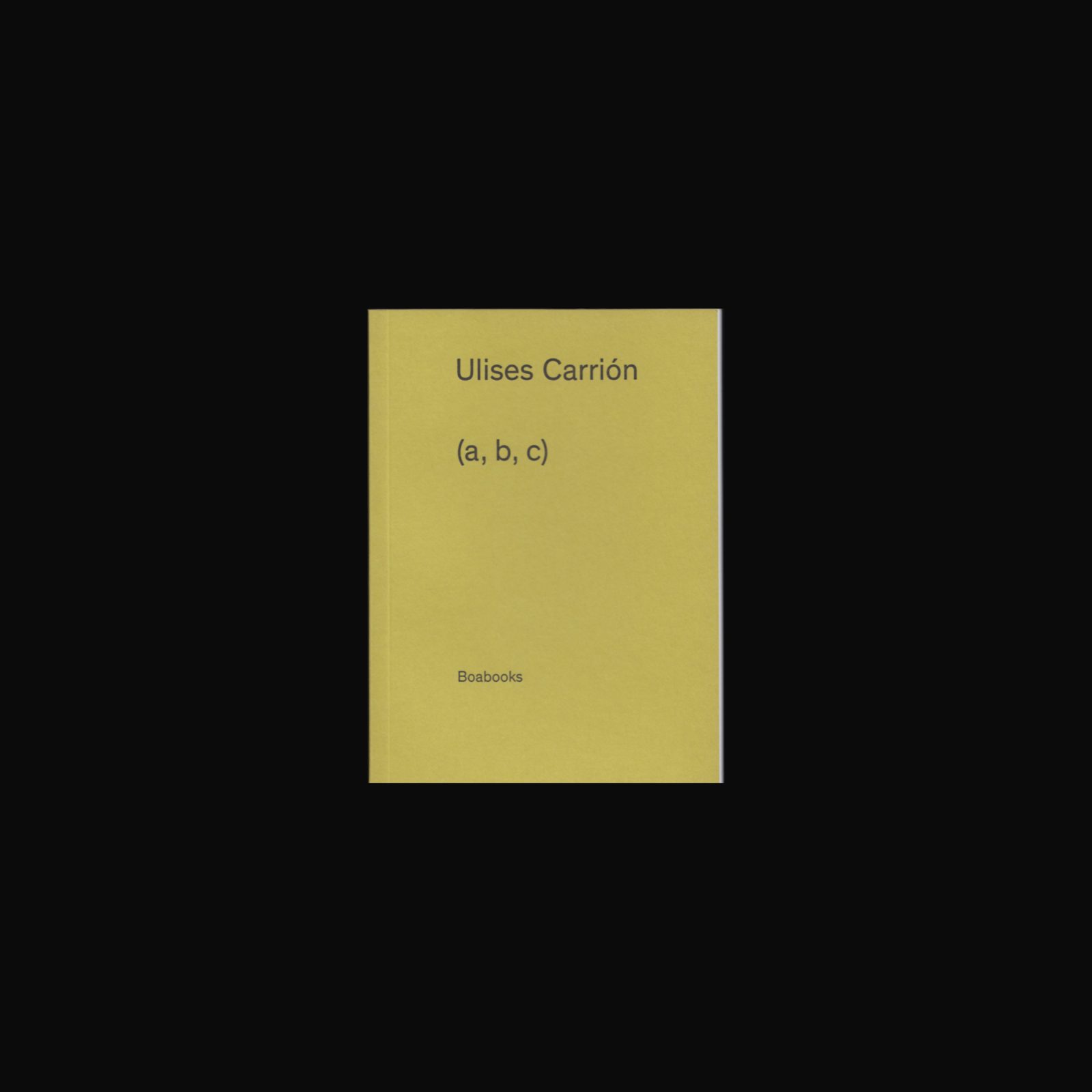


In (a, b, c) Ulises Carrión presents one if his early linguistic exercises in English, originally handwritten in green ink in 1972. The author observes and explores the structure of the sonnet. He develops fourteen interrelated sequences, which he uses as a key to codify a narrative. The text of each poem follows the schematic order of its title.
Ulises Carrión (1941–1989) is one of the most important figures of Mexican conceptual art. His 1975 manifesto The New Art of Making Books helped defined artist’s books as an autonomous artistic genre. His work includes numerous artist’s books—which was then designated as bookworks—but also video art, sound arts, performance and mail art.
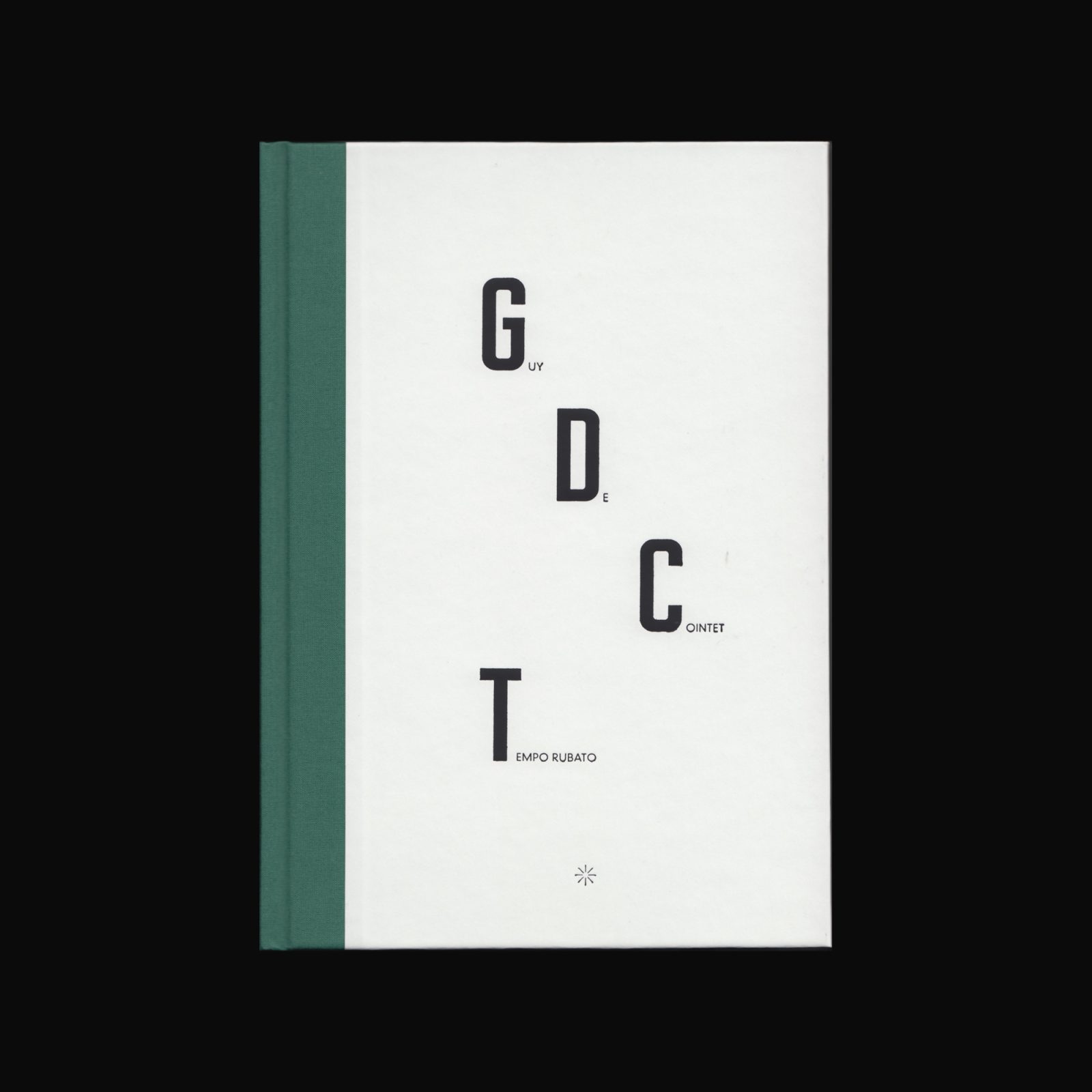

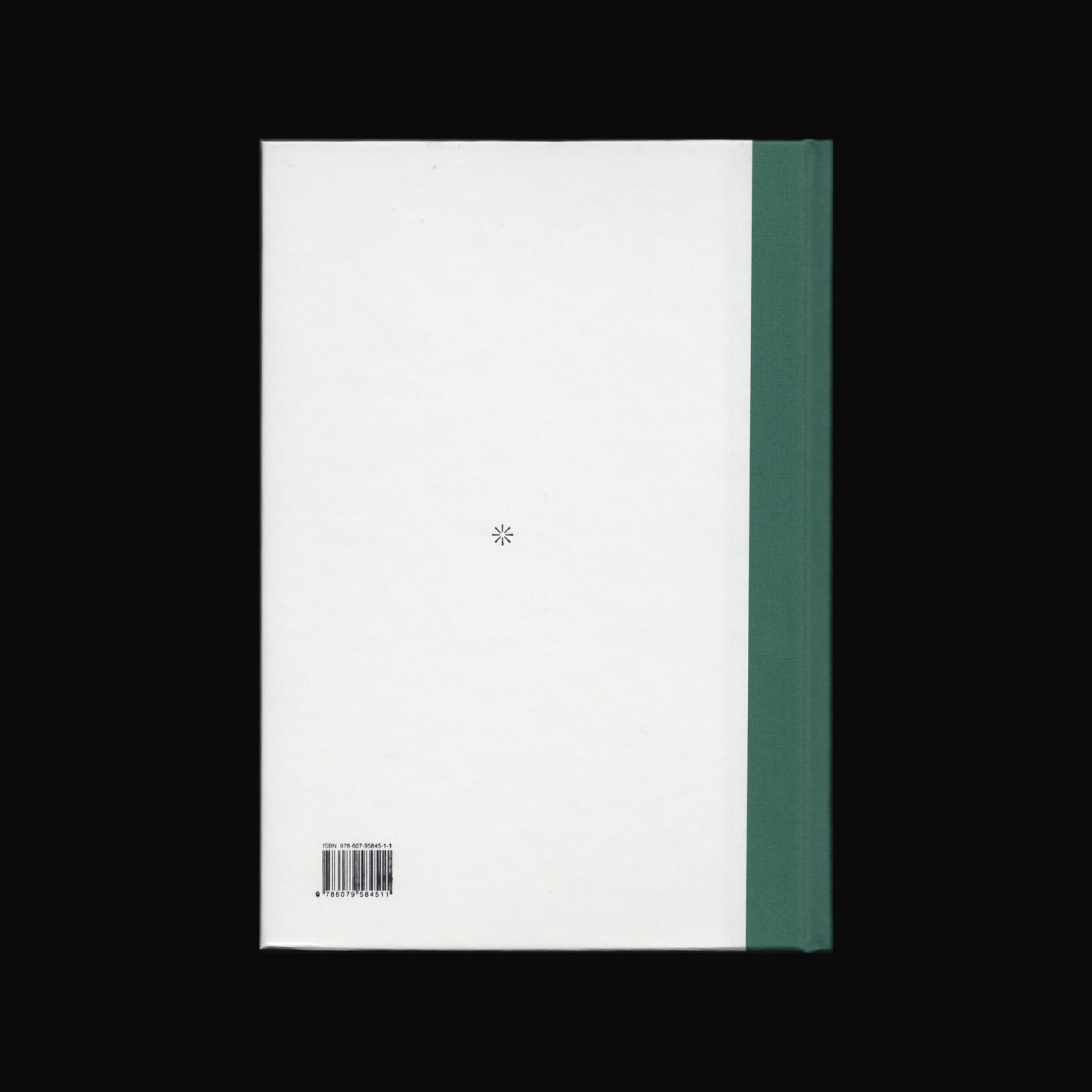
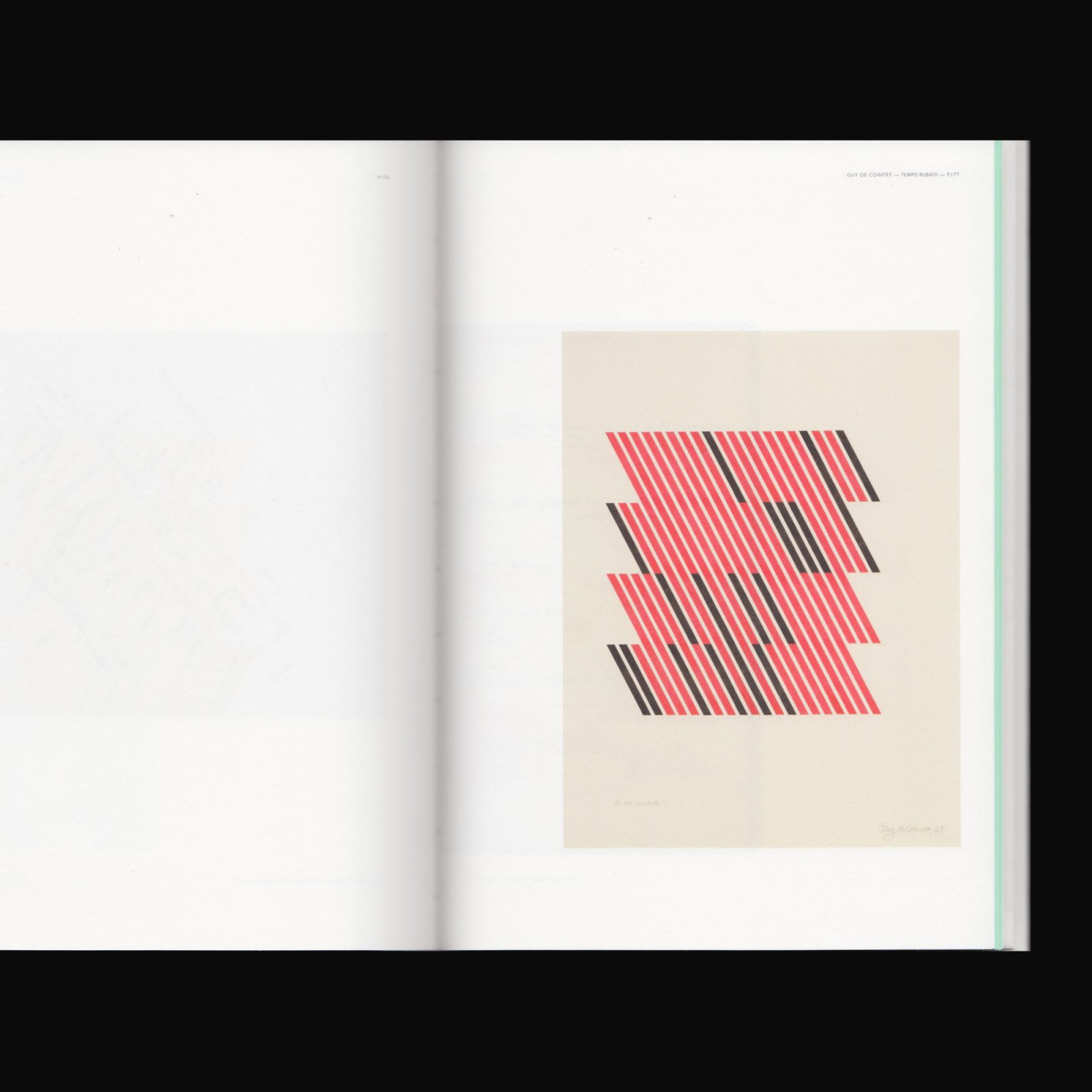
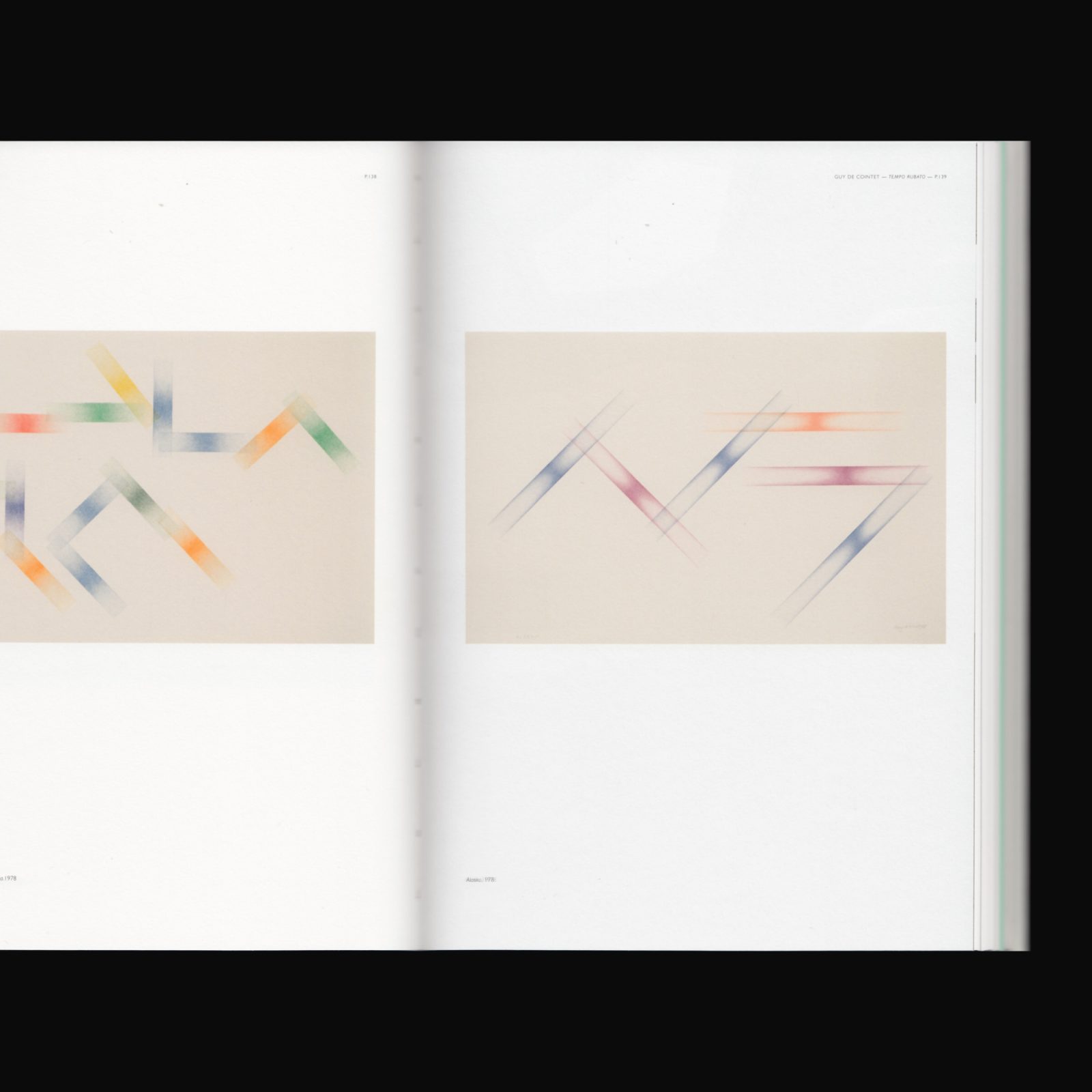
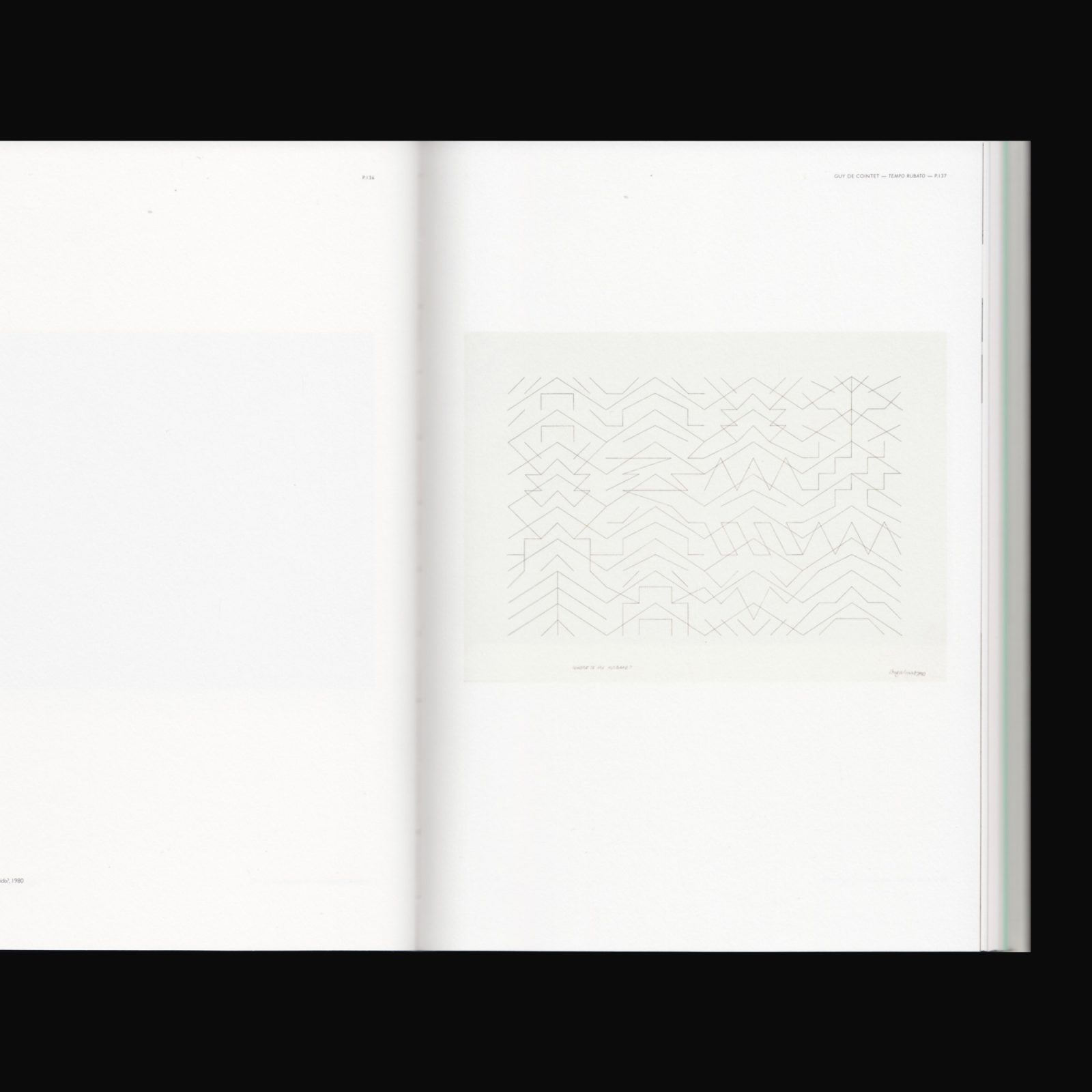
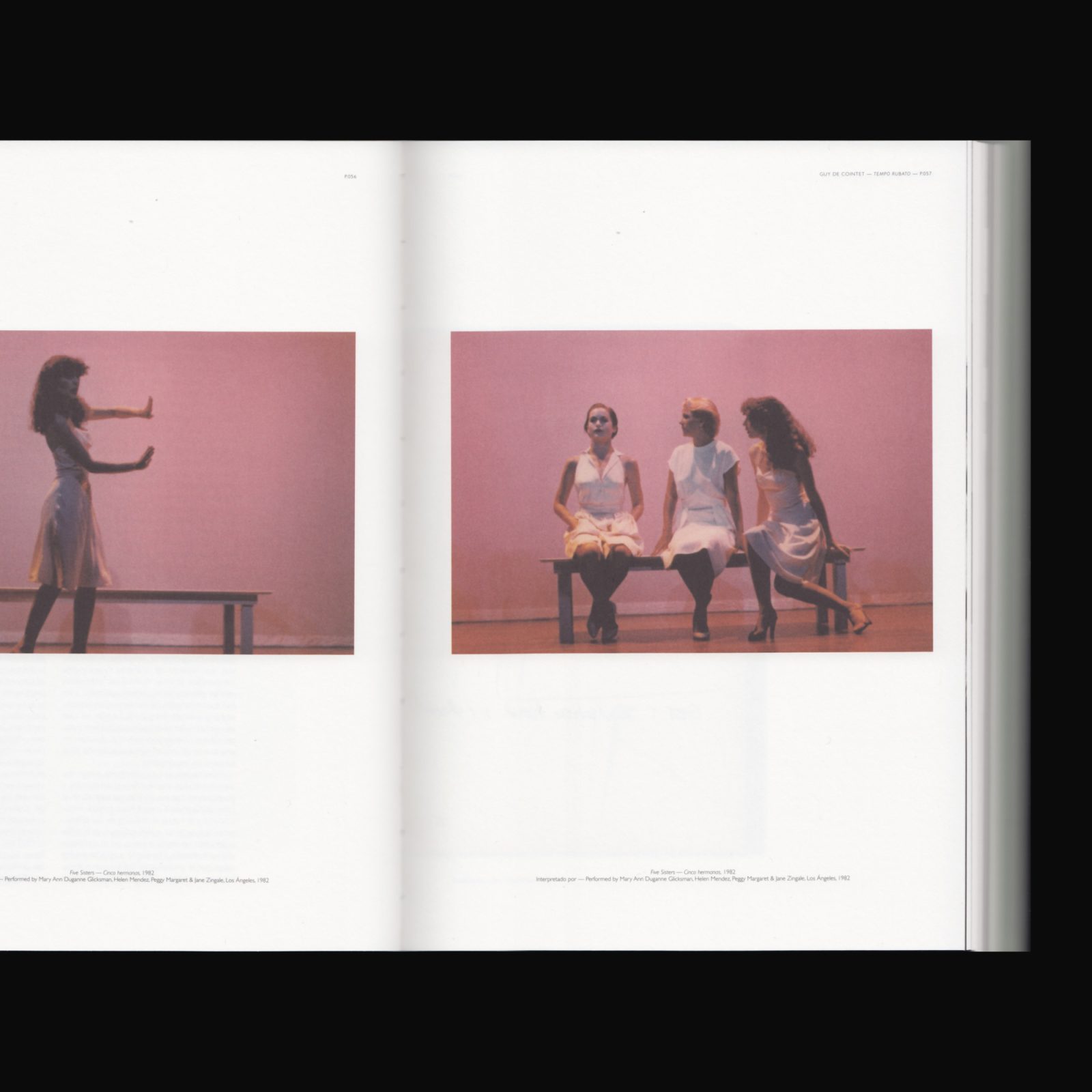
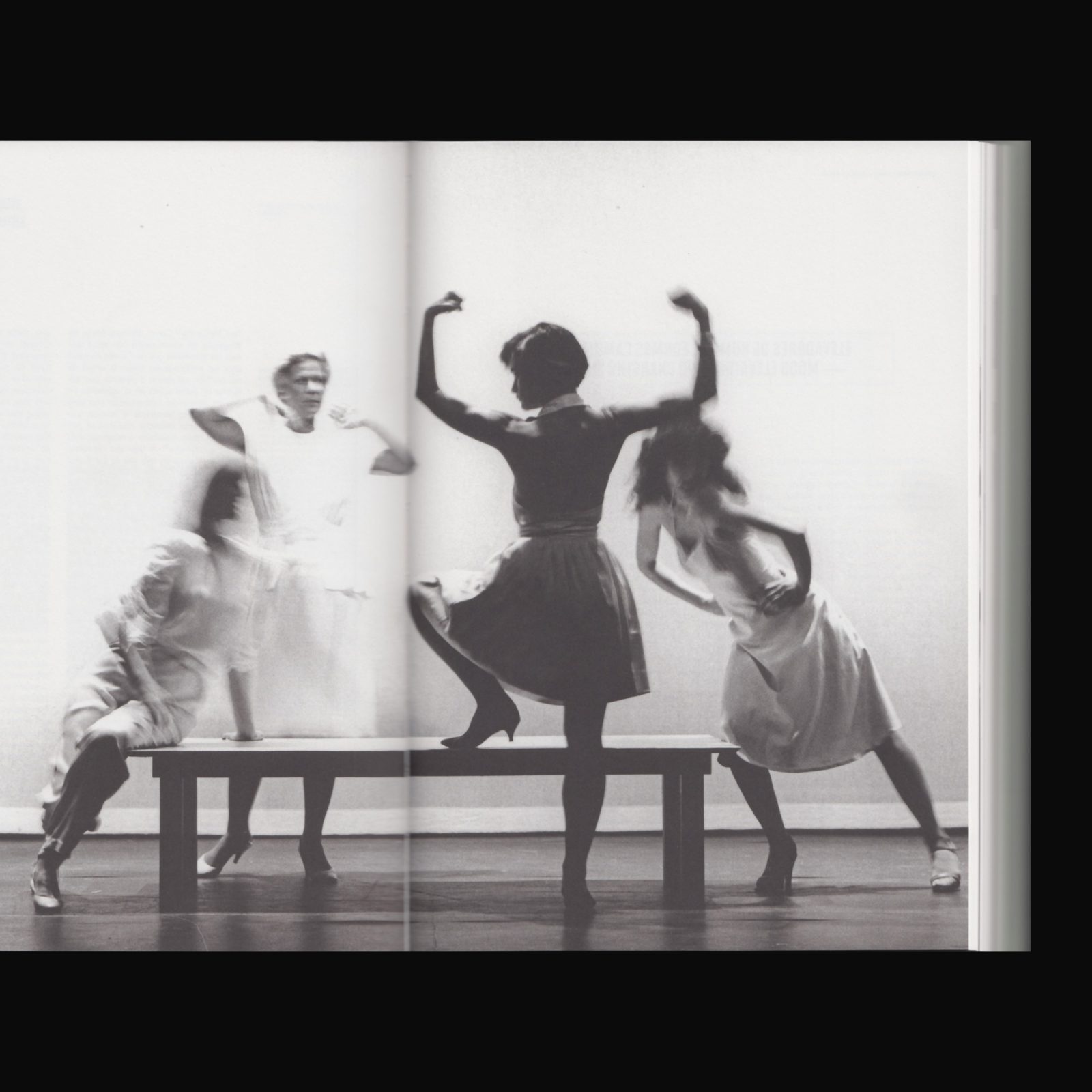
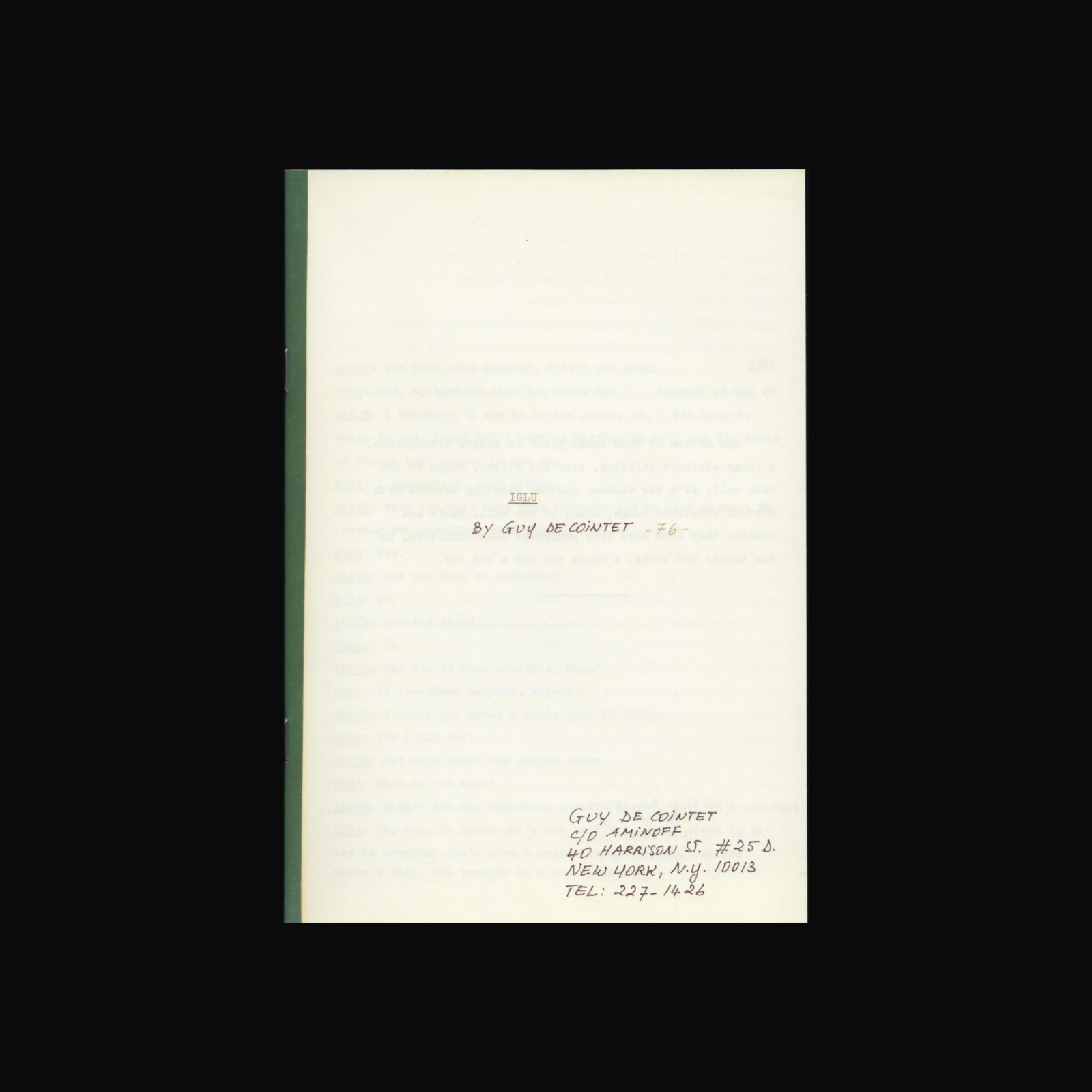
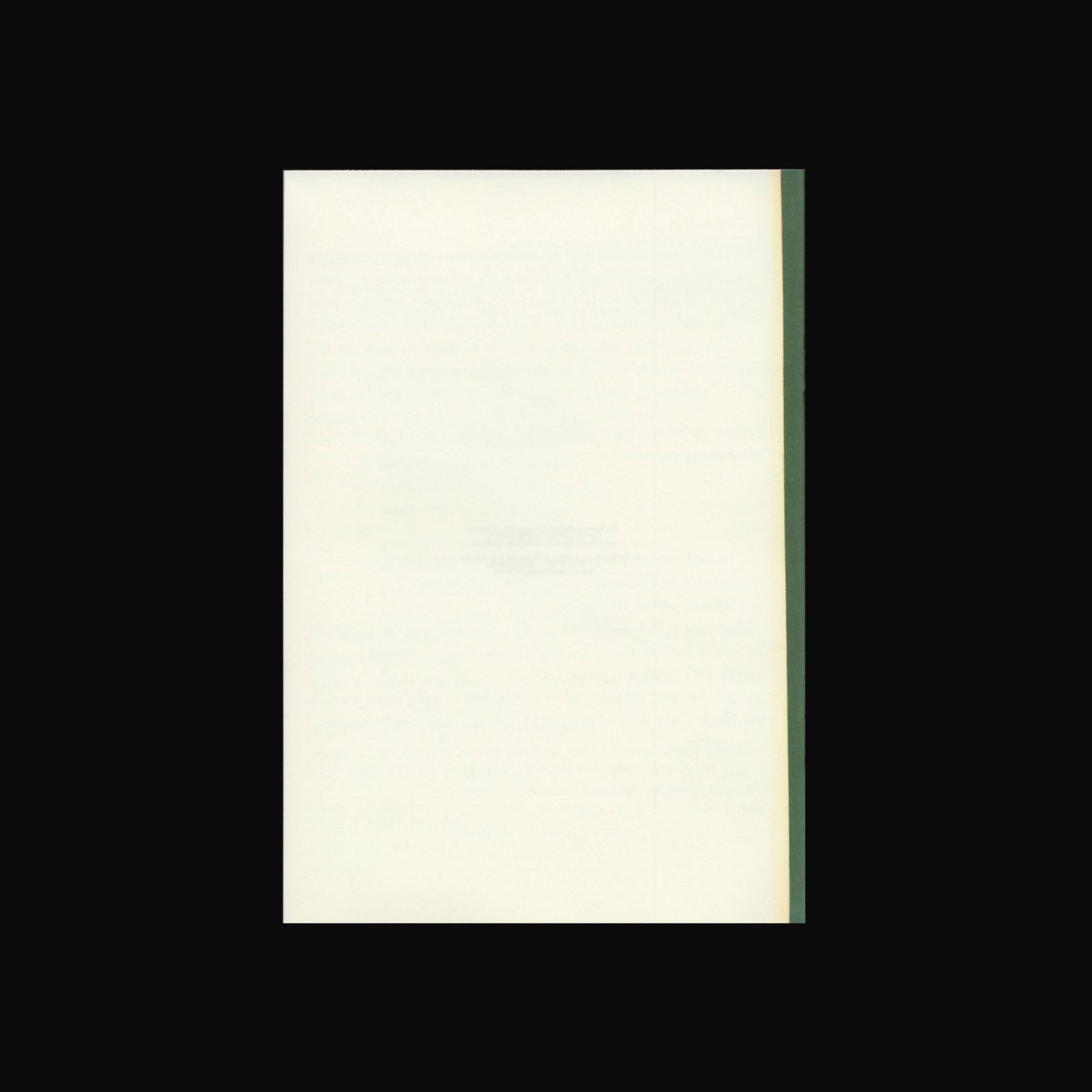
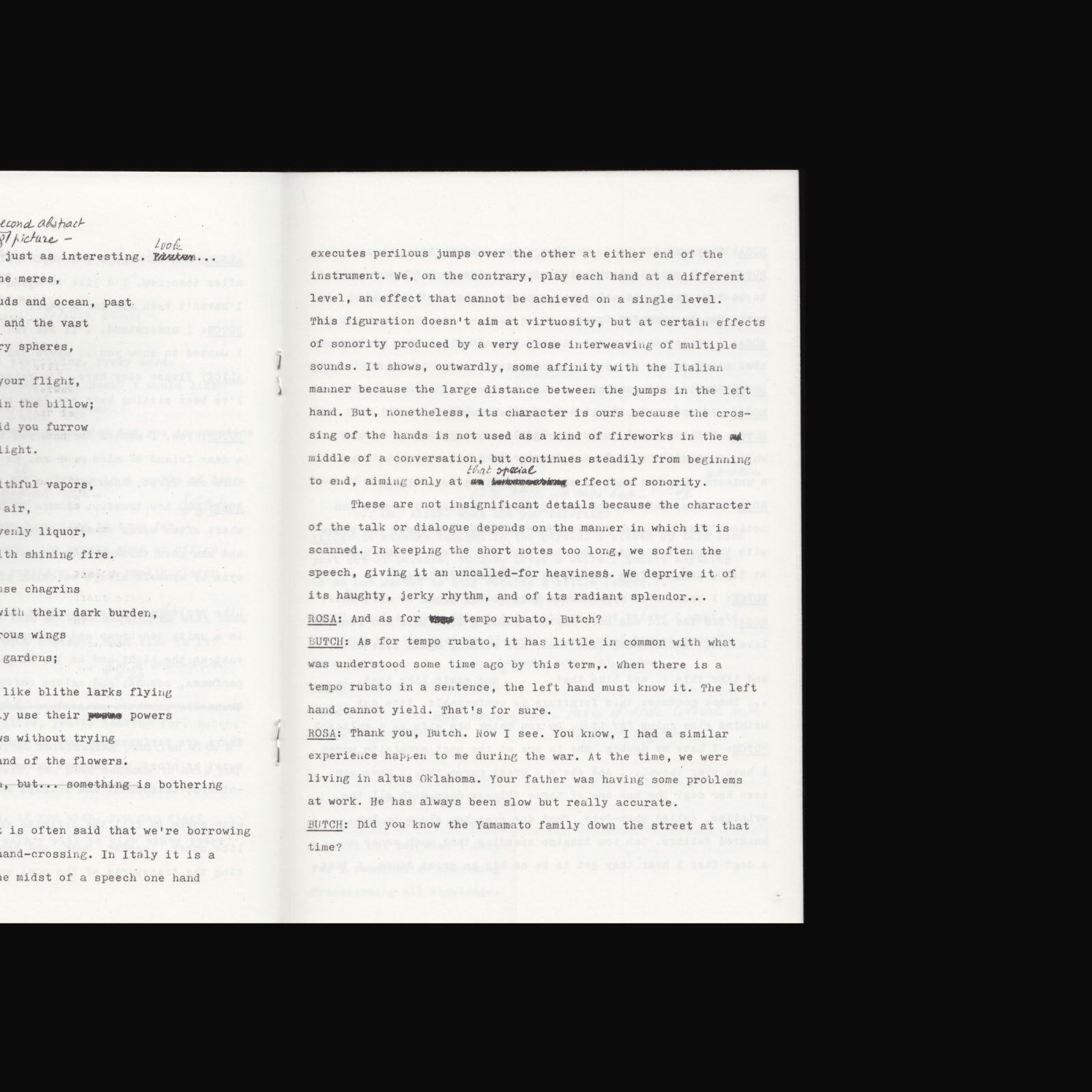
Produced on the occasion of the exhibition Guy de Cointet: Tempo rubato at Fundación/Colección Jumex, 3 December, 2012–14 February, 2013.
Guy de Cointet’s oeuvre, which includes drawings, publications, performance and film, intersects many of these areas of investigation, being at once performative, conceptual, minimalist, abstract and inspired by historic events, popular culture and mass media.
This publication includes a facsimile of the script for IGLU, a play he wrote in 1977, and its translation to Spanish.